
133 minute read
continued on
Spectacular Diwali celebrations at King George Square organised by FICQ
descent and the broader South East Queensland community attend the event annually, signifying the festival’s success over the years. A Dhol Tasha honour was extended to the dignitaries while the large crowd thoroughly enjoyed and celebrated the festivities. Culinary and cultural entertainment were integral to the celebrations and ran right through the day with food, songs and dance performances from various parts of India. Acknowledging the tireless work over months by FICQ committee members, Mr Anoop Nannuru, President FICQ, said, “Diwali is a big event and festival for the Indian community. Organising this event is a mammoth task. From organising funds to ensuring the financial viability, to executing it and later cleaning the mess created after the event, each step is a huge effort and must be executed meticulously, taking care of every minute detail to make it a grand success. It is a pleasure to see the Indian community support and come together as one during this Diwali function. We thank all committee members, advisors, member organisations, volunteers, sponsors, dignitaries and community members for their continued support.”
Advertisement





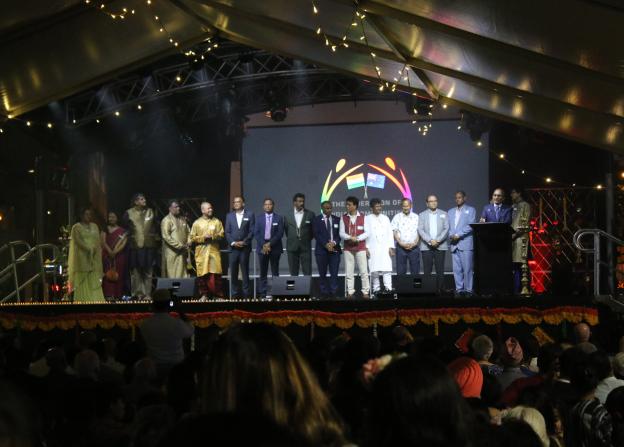


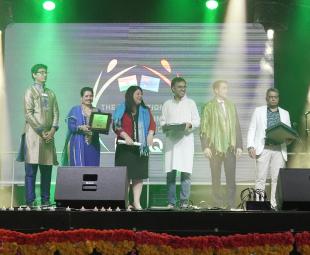
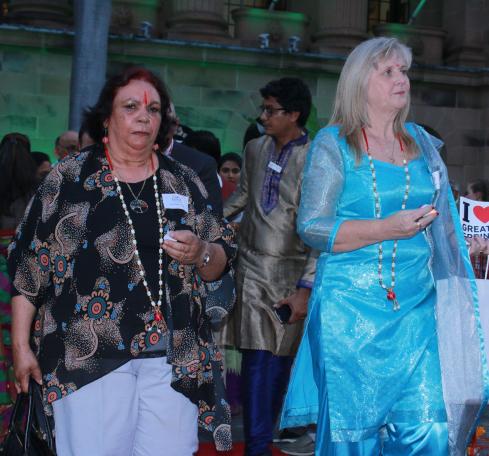
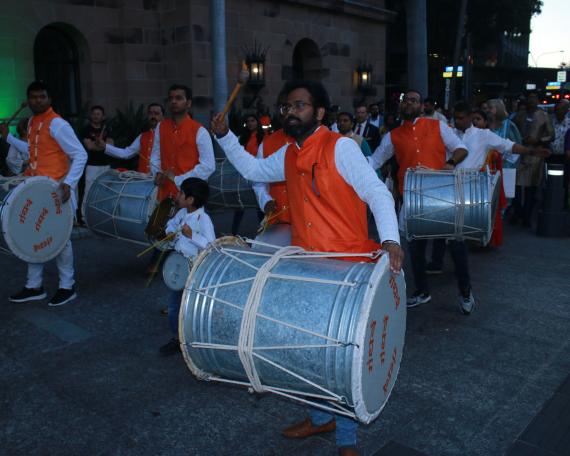
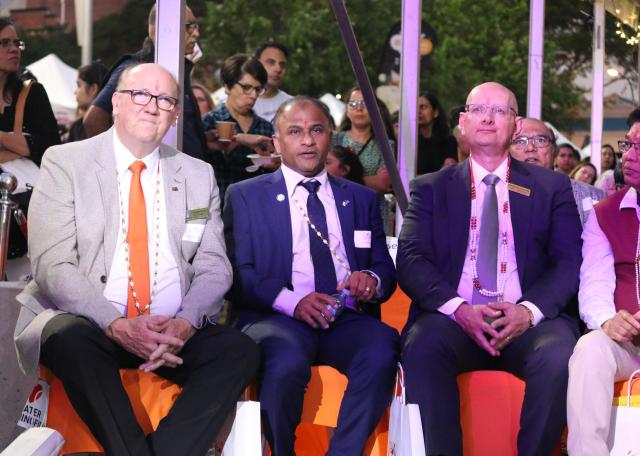
Apply for your director ID online
The fastest way to apply for a director identification number (director ID) is online at abrs.gov.au If you’re a director you must apply yourself by 30 November 2022. No one can apply on your behalf. ABRS
Australian Business Registry Services
Before you apply
Make sure you have a myGovID
To access the director ID application online, you will need a myGovID with at least a Standard identity strength to log in to ABRS online. If you don’t have a myGovID, visit www.mygovid/setup You’ll need a smart device to download the myGovID app.
Gather your documents
To apply for your director ID, you will need to have information the Australian Taxation Office (ATO) knows about you. You will need:
■ your tax file number (TFN) ■ your residential address ■ information from 2 documents to verify your identity. Examples of the documents you need are listed at abrs.gov.au/verify
Find out more at abrs.gov.au
This information is current as at 19 October 2022.
The application process
1. Apply Go to abrs.gov.au/directorIDapply to apply. Select Login
2. Enter your myGovID email address
3. A 4 digit code will appear on your browser
4. Open the myGovID app on your smart device and type in the code 5. A Link to ATO screen will open on your browser
6. Use your gathered documents to answer the questions and Submit
#TopTip – If you receive an error to contact us, you can logout and refresh your browser. Log in again and continue the application.
7. The director ID page will open 8. Select Apply for a director identification number
9. Confirm all the declarations and Submit the information
10. Your director ID should now appear on screen
Head to abrs.gov.au for more information on managing your director ID
ABRS
Australian Business Registry Services
ATO
ABRS
Apply
LOGIN
ABRS
Submit
1234
ABRS
director ID
ABRS
123 45678 91011 12
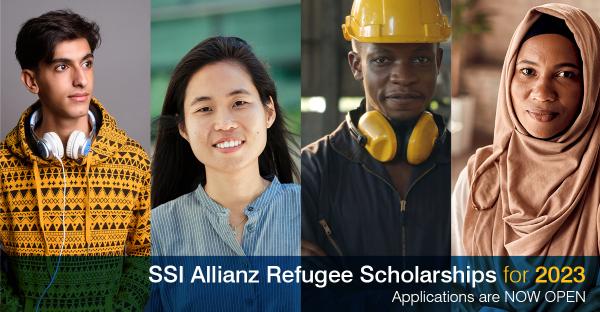

AU Commission chief calls for youth inclusion as Africa marks annual Youth Day
Addis Ababa, Nov 2 (IANS) Chairperson of the African Union (AU) Commission, Moussa Faki Mahamat has called for improved youth inclusion as the African continent marks the annual Youth Day. The celebration of the African Youth Day, which is annually commemorated on November 1, is in line with the importance that African leaders attach to the continent’s youth, as stated in the Preamble of the African Youth Charter, which is “the greatest wealth of the continent,” Faki said on Tuesday. The AU Commission Chairperson emphasised the need to break barriers to Africa’s youth participation and inclusion through advocacy, Xinhua news agency reported. He further underscored the efforts expected of the continent’s youths in respect of their participation and inclusion in this new dynamics of development, set in motion by the AU since the adoption of Agenda 2063 in 2013. “Indeed, we must have the
courage to recognise that the obstacles to the inclusion of young people could be sought in governance,” he added. He further emphasised that a large number of obstacles sometimes drive some sections of the continent’s youth to develop a dark perception of themselves, their future, their respective countries, and Africa. He underscored that the participation and inclusion of the youth call for a contribution of new blood to the various debates through a renewal of ideas. “To do so, a positive mindset, steeped in resilience, patience, immersed in the virtues of moral probity and active faith in the future, remains the only guarantee of triple political, economic, and social effectiveness,” he added. Ethiopian govt, rebels announce deal to end conflict
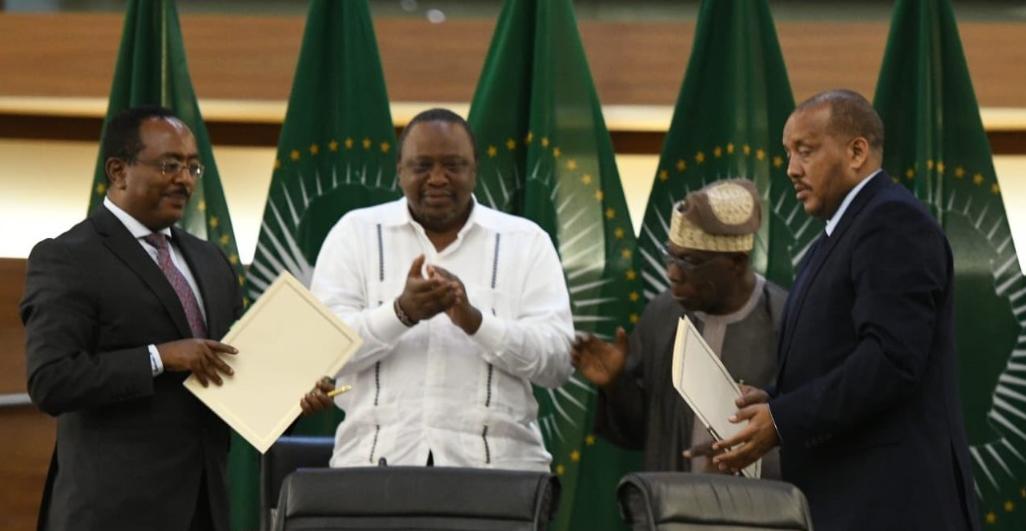
Addis Ababa, Nov 3 (IANS) The Ethiopian government and the rebel Tigray People’s Liberation Front (TPLF) announced an agreement to end the two-yearlong conflict in the East African country. The peace accord was signed on Wednesday in the South African capital Pretoria, days after an African Union (AU)-led negotiation, which was facilitated by Olusegun Obasanjo, the bloc’s high representative for the Horn of Africa and former president of Nigeria, along with the former president of Kenya Uhuru Kenyatta, and former deputy president of South Africa Phumzile Mlambo-Ngcuka. The two parties in the conflict have formally agreed to the cessation of hostilities and orderly disarmament, Xinhua news agency quoted Obasanjo as saying at a press briefing. The deal includes restoring law and order, restoring services and unhindered access to humanitarian supplies, he said. The direct talks facilitated by the pan-African bloc were part of the ongoing AU-led process to support the related parties in finding a political solution to the conflict in the Tigray region. Ethiopia, Africa’s second most populous nation, has seen a devastating conflict between government-allied troops and forces loyal to the TPLF since November 2020, which has left millions in urgent need of humanitarian assistance. The agreement is an outcome of African solutions to African problems, Obasanjo said, emphasizing that the moment is not the end of the peace process but the beginning of it. The peace talks, launched on October 25, paved the way for restoring peace, security and stability in the Tigray region, the AU said in a statement on Wednesday. “The agreement marks an important step in efforts to silence the guns, and provides a solid foundation for the preservation of Ethiopia’s sovereignty and territorial integrity, the immediate cessation of hostilities, the resumption of unhindered humanitarian access, the restoration of services as well as healing and reconciliation,” the statement said. The High-Level Panel for the AUled Ethiopian Peace Process congratulated and commended the parties for their “commitment, diligence and stellar leadership throughout the process, and for prioritizing the Ethiopian people and the supreme interests of the Ethiopian nation”. “As the country embarks on this next chapter in its great history, the Panel affirms its commitment and readiness to continue accompanying the process towards a more democratic, just and inclusive Ethiopia in which youth, women and men participate fully and in peace,” the statement added. The Intergovernmental Authority on Development congratulated the Ethiopian government and the rebel TPLF on signing the agreement. “By signing this agreement to silence the guns and end the armed conflict, the people of Ethiopia now have the opportunity to establish a long-lasting peace,” Workneh Gebeyehu, executive secretary of the trade bloc, said. Gebeyehu encouraged all parties to the agreement to implement its provisions.
Africa’s largest female elephant dies

Nairobi, Nov 2 (IANS) Africa’s largest female elephant, Dida, died aged between 60 and 65 years at a national park southeast of the Kenyan capital Nairobi, wildlife authorities have confirmed. The Kenya Wildlife Service (KWS) said on Tuesday that Dida, who was possibly Africa’s largest female Tusker and a matriarch residing in Tsavo East National Park, which is located in the Coast Province, died from natural causes, reports Xinhua news agency. “Dida was truly an iconic matriarch of Tsavo and a great repository of many decades worth of knowledge,” KWS said in a statement. According to KWS, Dida shepherded her herd through many seasons and challenging times and served as both the subject of various documentaries and an iconic tourist attraction. “Those who got to know her (Dida) through pictures and videos, as well as those who had the exquisite pleasure of meeting her in person, will remember her,” the KWS said. There has been an increase in elephant populations in Kenya, according to the country’s first-ever wildlife census which was released in 2021. The census carried out by the Ministry of Tourism and Wildlife shows the national elephant population has increased from 32,214 elephants in 2014 to 36,169 in 2021 This represents a 12 per cent population increase over seven years which is a testament to the productive anti-poaching efforts by the government and conservation partners.
India sharpens focus on East Africa with new round of naval exercises
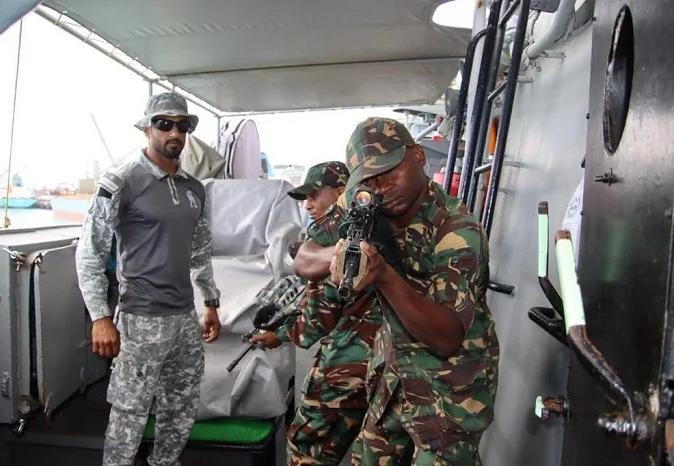
New Delhi, Oct 31: As it ended Saturday, the first-ever IndiaMozambique-Tanzania Trilateral (IMT TRILAT) maritime exercise began a new chapter in the Indian Navy’s growing efforts to enhance the security of the east coast of southern Africa and the Indian Ocean Region as a whole. Guided missile stealth frigate INS Tarkash, a Chetak helicopter and the personnel from the Marine Commando Force (MARCOS) - India’s only Special Forces trained and equipped for conduct of special operations in maritime environment - took part in the three-day joint exercise between the Indian, Mozambique and Tanzanian navies which commenced at Tanzania’s largest city Dar Es Salaam on October 27. While the harbour phase witnessed capability-building activities such as small arms training; joint diving operations; damage control and fire fighting exercises besides cross-deck visits, the sea phase included boat operations, fleet manoeuvres, visit, board, search and seizure operations, helicopter operations, small arms firing, formation anchoring and EEZ patrols. The exercise, stated the Indian Navy, had three broad objectives: capability development to address common threats through training and sharing of best practices, enhancing interoperability, and strengthening maritime cooperation. “These exercises reflect India’s and the Indian Navy’s commitment to enhancing maritime security and cooperation with maritime neighbours in the Indian Ocean Region and promoting SAGAR - Safety and Growth for All in the Region,” it said in a statement. As reported by IndiaNarrative. com earlier, the Indian Naval Ship Tarkash has been building new partnerships and strengthening old ones on its long-range overseas deployment. Marking a new level of strategic convergence, it has visited Djibouti on the Horn of Africa followed by Maritime Partnership Exercises with the Sudanese Navy and the Royal Moroccan naval ships off Casablanca port. It also participated in the first joint operational deployment by India and Nigeria in support of anti-piracy operations in the Gulf of Guinea (GoG) and in IBSAMAR with Brazilian and South African navies off the coast of South Africa’s Port Grequhrea, also known as Port Elizabeth. The exercises not only strengthen bilateral naval ties but also further the Indian Navy’s operational philosophy of Mission Based Deployments under which ships are regularly deployed in maritime areas of interest to India to ensure that the national interests are protected. As it assumes the Presidency of the G20 for one year starting in December, India has made it clear that it will always remain an all-weather friend of Africa and that developing long-standing people-to-people links with the African countries will be its top priority. While Mozambique enjoys a privileged geographical location with its 2500 km long coast bordering on the Indian Ocean, Tanzania is a natural and effective transportation gateway into Eastern, Southern and Central Africa with its three deepwater ports in Dar es Salaam, Tanga and Mtwara that service six landlocked neighbouring countries of Congo, Uganda, Rwanda, Burundi, Zambia and Malawi. In July 2019, Mozambique was the first country Rajnath Singh visited after taking over as the country’s Defence Minister. It was also the first-ever visit of an Indian Defence Minister to the African country. As Mozambique sought cooperation from India in dealing with the growing menace of terrorism and radicalisation, Singh had assured New Delhi’s full support to Maputo. He also handed over two Indiamade Fast Interceptor Boats (FIBs) to the Mozambican Navy for coastal surveillance. Strengthening the ongoing Indo-Mozambican defence cooperation, Singh held talks with Mozambique Defence Minister Cristovao Artur Chume on the sidelines of the 12th DefExpo in Gandhinagar, last week. Similarly, this August, Singh held bilateral talks with Tanzanian Minister of Defence and National Service Dr Stergomena Lawrence Tax in New Delhi as the two ministers reviewed the existing military-to-military activities and discussed ways to enhance cooperation in all domains with a focus on defence industry cooperation. Tax had also visited the Wargaming Development Centre (WARDEC); the Information Fusion Centre - Indian Ocean Region (IFC-IOR) and held meetings with the Indian defence industries in Hyderabad. (The content is being carried under an arrangement with indianarrative.com)
Fijian community celebrates Diwali
The Fijian community in Alice Springs, NT, got together to celebrate Diwali on the 29th October. The local MP Marion Scrymgour was the Chief Guest. Fiji-born people have been in Fiji- born persons in Australia, who were mostly children of missionary families originally from Australia or Europe.
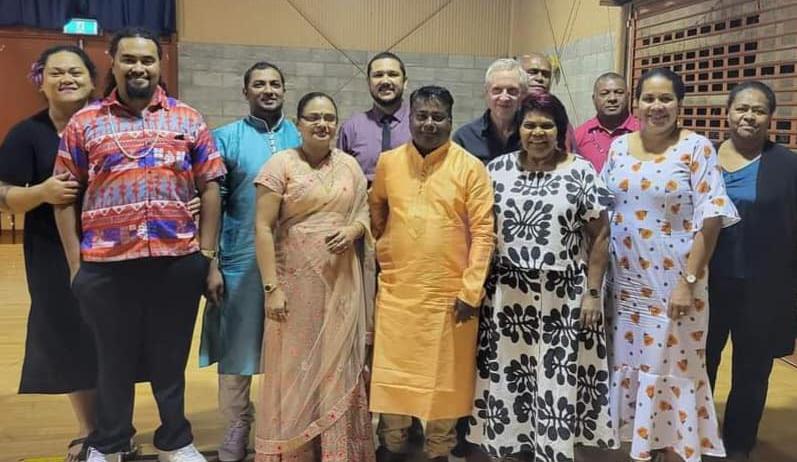

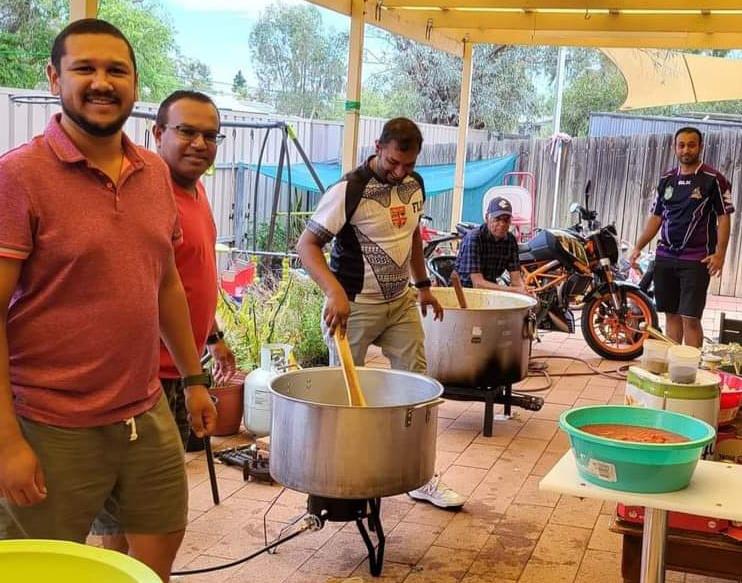

Clean water for children and teachers
Temwanoku Primary School is one of the 11 Primary schools in South Tarawa where urgent water repairs have been completed through Australia’s Kiribati-Australia Partnership with the Ministry of Education. As the drought continues to worsen, Australia has continued to support the Government and people of Kiribati in the implementation of the “Drought-ready WASH refresh” in 11 primary schools. By installing new taps, cleaning water tanks, and repairing gutters and pipes; rain water can be captured and stored better in these schools, for the benefit of 8,300 primary school children across South Tarawa. Through this initiative, children like those at Temwanoku can keep going to school through the drought, knowing that they have access to safe drinking water every day. Deputy High Commissioner Timothy Gill, recently visited the community at Temwanoku Primary School to mark Education Week in Kiribati and recognise the positive impacts of the repairs to its water capturing capacity. Head Teacher Rotaana at Temwanoku Primary School acknowledged the support from the Australian Government and the implementing team for repairing all the rainwater catchment and providing more access to clean water. “Water is life, the students of Temwanoku now have sufficient clean water, and they’re happy, happy children, happy teachers.” said Rotaana.
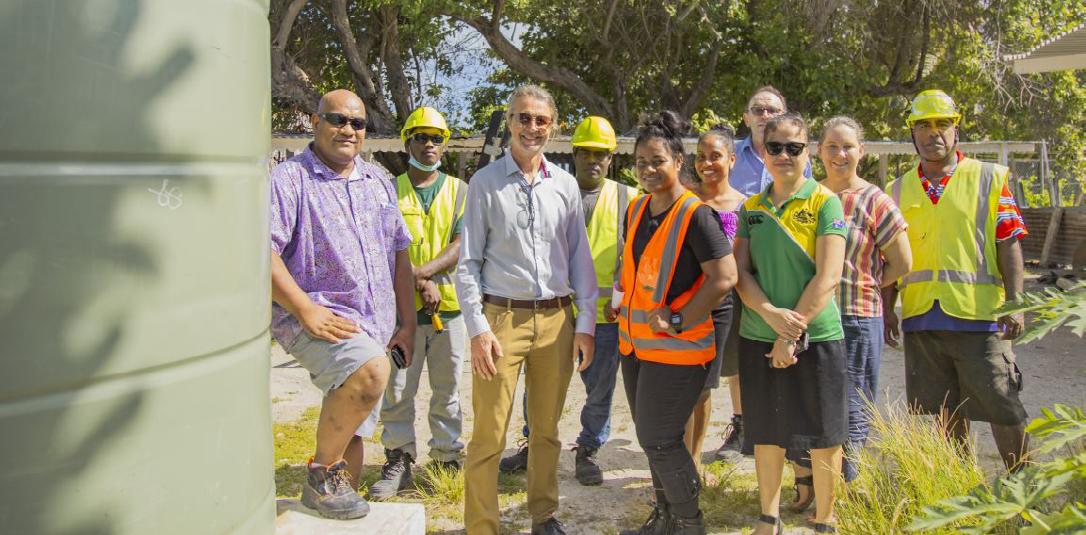

Australian Defence Force partners with Pacific island countries
The Australian Defence Force (ADF) continues to contribute to regional security and partnerships with Pacific island countries. The FSS Tosiwo Nakayama and its crew worked collaboratively with the Australian C-27J Spartan in maintaining border security and FSM’s EEZ. The Commanding Officer of the Patrol Boat, Lieutenant Commander PaulinoYangitesmal, said that he was grateful for the support provided to his country by the Australian Government and Australia since the late 1800s. By the early 1900s, there were 585 Fiji-born people in Australia, the majority of who were of European ancestry. By the mid-1950s there were over 2,000
for the opportunity to work alongside the ADF. Australian Flight Lieutenant Peter Wuttke, said that deploying to Micronesia demonstrated Australia’s ongoing commitment to maintaining regional security alongside its Pacific partners. “The aerial surveillance that we conduct on each sortie alongside local authorities supports FSM in its coordinated fisheries monitoring, control, and surveillance operations. Information collected is then passed on to local authorities to enable them to act to ensure vessels are compliant.” While the isolation of operating out of Pohnpei presented some unique challenges for equipment and support services, Flight Lieutenant Wuttke said he and his entire detachment had felt warmly welcomed by locals from the moment they touched down. “From the moment we landed, and every day throughout our deployment, the friendliness and hospitality shown towards us from the community have been nothing short of amazing.”

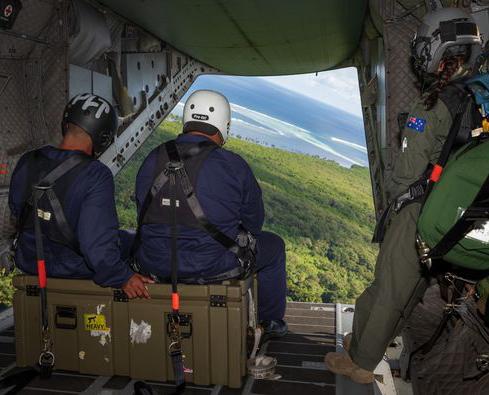
Air connectivity is critical to connect people and boost economic growth in our region. With the first flight arriving in Tarawa on 16 October 2022, the Australia-North Pacific Connector links BrisbaneNauru-Tarawa-Majuro-Pohnpei through a fortnightly air service. Working in partnership with all the countries on this route, the new flight is the next initiative under Australia’s Pacific Flights Program, which supported the flights by Solomon Airlines that became a familiar sight here in Tarawa delivering vaccines, critical supplies and ensuring essential movements of people over the last 18 months. The Australian High Commissioner to Kiribati, H.E David Yardley was joined by the Secretary for Ministry of Foreign Affairs and Immigration, Michael Foon, and Secretary for Information, Communication and Transport, Mitateti Moote at the Bonriki International Airport, welcoming the first flight of the Australia-North Pacific Connector to Kiribati on its way back to Nauru and Brisbane on 17 October. The new flight, supported by Australia, is operated by Nauru Airlines, and on this first voyage included Nauruan Deputy Minister for Foreign Affairs, Asterio Appi, CEO of Nauru Airlines, Robert Eoe, and Deputy Chairman Geoff Bowmaker onboard.
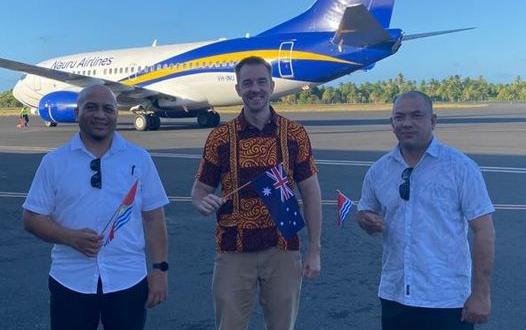
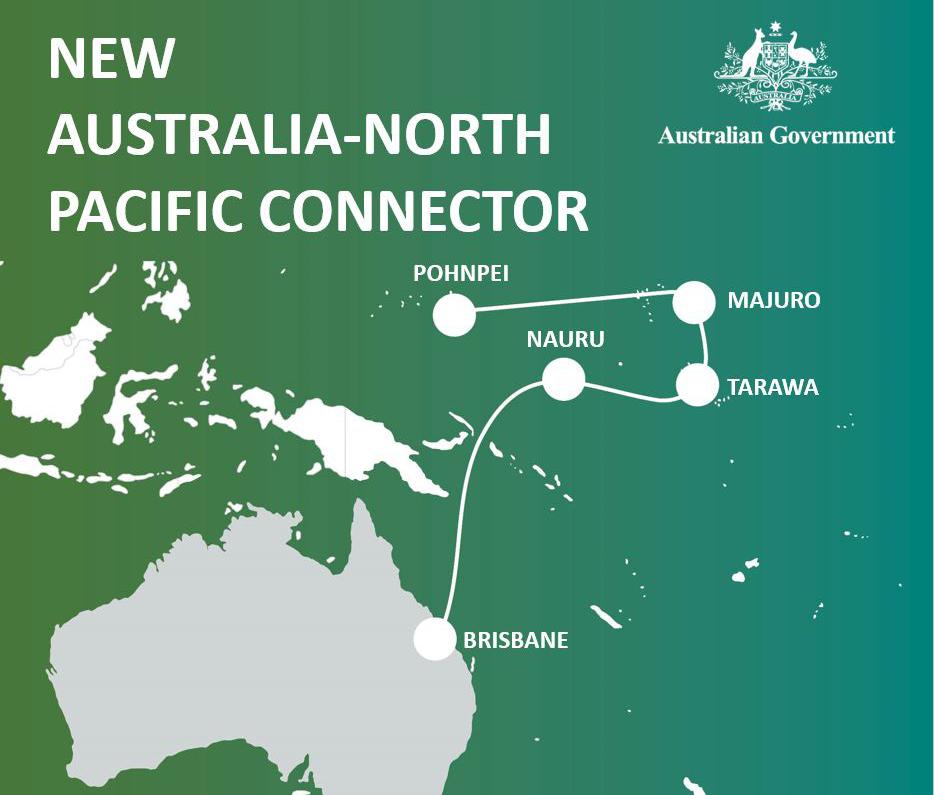
University of the South Pacific to increase abilities of Nauruans
Secretary for Education Darrina Kun, the government of the Republic of Nauru shared her views recently on how vital the University of the South Pacific (USP) is to enhancing the abilities of Nauruans at its Nauru campus open day, 4 November. The open day highlights the opportunities for young students who seek to further their education and study for their career of choice once they graduate from school and further helps those who are already in the workforce. Kun said that Nauru’s founding fathers saw the importance of establishing this regional academic institution so that it would open up opportunities for people seeking to further their education, gain skills and understand the technical aspects of an individual’s preferred field of work.Director of USP Nauru Campus SarinaTamakin said that the number of students can be better and encourages more people to apply to study at USP. Students from Nauru Secondary School visited the stalls set up by various government departments and state owned enterprises, including the Department of Health, the Nauru Utilities Corporation and the Nauru Rehabilitation Corporation amongst others.
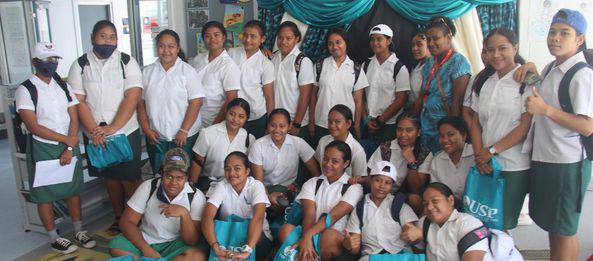
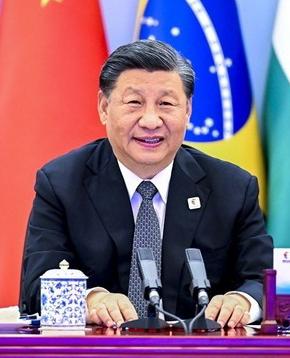
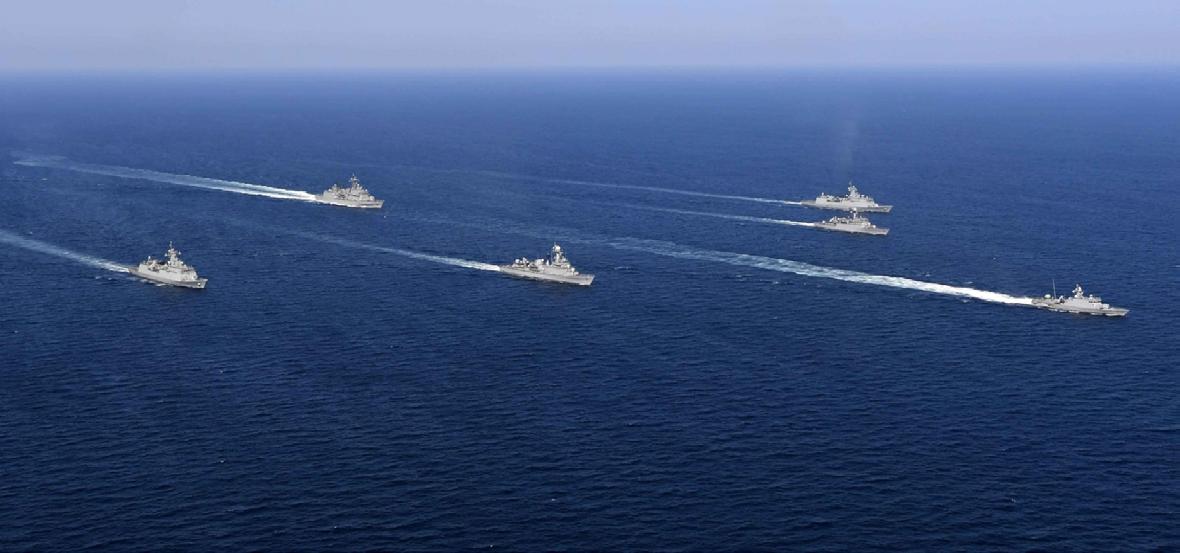
Yoon’s approval rating rises to 35.7% SKorea participates in Japan’s fleet review for 1st time in 7 yearsper cent, surpassing the mid-30 percent range for the first time in four months, a new poll revealed on Monday. Yoon’s approval rating jumped 2.8 percentage points from the previous week, while his disapproval rating slipped by 2.7 percentage points to 61.7 per cent, according to the Realmeter poll. This is the first time the President has garnered support of more than 35 per cent in a Seoul, Oct 31 (IANS) South Korean President Yoon Sukyeol’s approval rating rose to 35.7 Realmeter poll since the first week of July, reports Yonhap News Agency. Xi Jinping expects to be in command till 2035 both sides poorer. “China remains connected to the outside world largely through the virtual environment, in particular social media and video apps. Yet the vision of the world created within the country is very partial. State media pumps out images of the west still devastated by the virus,” says an article ‘The Guardian’. China, Xi - And Peace in India’s North East This is one of the most perilous periods in international history. New Delhi, Oct 24 (IANS) Certainly, some critique put him on a par with Deng Xiaoping or even Mao Zedong. Some years ago, Xi Jinping had made a classic statement - “One must build a good cage. If the cage is too loose, or is very good but the door is not closed, and one is free to go in and out, then that is of no use.” Now, the Communists party in China moves on to a new central task -- to achieve the “second centenary goal of building China into a great modern socialist country in all respects and to advance the rejuvenation of the Chinese nation on all fronts through a Chinese path to modernisation. The mega Chinese goal is tied to the 100th anniversary of the founding of the People’s Republic of China -- which would be 2049 -- but Xi has pushed the date for “basically” realizing this goal forward to 2035. Conveniently, that leaves the door open for Xi to still be in command of the party at the big celebration 13 years from now. Marxists in once upon a time Red forte Tripura - used to often say the line from a play. The line of the play was of course penned obviously with a pro-Left liberal sentiment: “Every war or struggle is for power; and power can never do good to anybody”. The economic policy that Xi has put forward contains a similar sort of contradiction. The central idea of the “dual circulation” policy is that China should increase its trade surplus with the wider world, while simultaneously becoming more dependent on its domestic economy to drive consumption. Many economists think that this will be a hard balance to manage. But, in a sense, the strategy should not be seen as an exercise in economics but in politics. It mirrors precisely the idea of being highly connected to the world while closed to it physically. But compared with real openness, it is one that would leave There’s something big happening everywhere -- China, Ukraine, Indo Pacific and of course Britain where Liz Truss had the shortest stint ever in history as Prime Minister. On the last day of Communists Party Congress in China on Saturday, Oct 22, former President Hu Jintao, was ‘removed’ unceremoniously and by force by so-called ‘unnamed Chinese communist agents’. Both China and the Chinese communists have many admirers in India and also in the northeast closer home as well. To them New Delhi ‘could not be trusted’ but Xi Jinping’s polity should be applauded. China is that country which has seen almost 30 years of 9 and 10 per cent of average growth even till fiscal 2016-17. This was surely an unprecedented performance by any country at the global stage. Importantly, during this period, around 50 per cent of global growth came from China and India was by default and otherwise part of the beneficiary list. The drop in Chinese growth rate had impacted global trade and commerce too. In fact, the global trade shrunk as a result of the negative impact on China’s own growth graph. At one time even India benefited and the country’s global trade was growing at an average of seven percent a year. The politics of China and also the other global challenges make a lot of sense even in the neighbourhood. It would impact now and it impacted regional politics even in the past. In the context of northeast India, Mon and Tuensang were the battlefields of various ultra groups. In the eighties, Indian security force reports used to suggest that communist China’s help and logistic support was crucial at least for one camp Even the church lobby was unhappy. One such internal security analysis had said that the league With 950 billionaires, Asia outnumbers all other regions Japan’s unemployment rate rises to 2.6%
His rating rose amid tensions over North Korean missile launches, and prosecution investigations into alleged wrongdoing by the previous Moon Jae-in government and into corruption allegations involving opposition leader Lee Jae-myung. The poll also showed Yoon’s People Power Party garnered support of 37.6 per cent, up 2.3 percentage points from the previous week, and the Democratic Party received support of 46.4 per cent, down 2 percentage points over the same period.
Tokyo, Nov 6 (IANS) A South Korean naval vessel took part in Japan’s international fleet review on Sunday for the first time in seven years amid escalating nuclear and missile threats from of western Christian countries led by the US and the United Kingdom were bemused while the Indian jawans reportedly watched from a distance what they called a snake-mongoose fight. But enough water has flown in river Dhansiri near Dimapur North Korea. South Korea was one of 12 countries, including the US, Canada and Australia, to take part in the review that took place in Sagami Bay off Kanagawa Prefecture, about 40 kms southeast of Tokyo, Yonhap news agency reported. Sailors aboard South Korea’s since then. ‘Christ’ and his 10,000-ton logistics support principles and values are now ship Soyang saluted toward a public pledge. ‘Nagaland for Japan’s helicopter carrier Izumo Christ’ - as they put it. carrying Japanese Prime Minister However, it is altogether a Fumio Kishida, as sailors from different chapter that violence other participating countries do and threats pursue at different while passing the carrier. levels. The Japanese vessel was flying According to the annual report the flag of the Japan Maritime of the Ministry of Home Affairs, Self-Defence Force (JMSDF). 2020, incidents of insurgency The flag looks similar to the in six out of eight northeastern states declined by 80 per cent since 2014 and civilian deaths were down by 99 per cent. The year 2020 also had recorded the lowest insurgency incidents and casualties among civilians and security forces in the last decades. This was the year of the Galwan valley conflict nevertheless. But around September 2020, in a retort to Prime Minister Narendra Modi’s statement okyo, Oct 28 (IANS) Japan’s unemployment rate rose to 2.6 per cent in September from the previous month, the government said in a report on Friday. According to the Ministry of Internal Affairs and Communications, the unemployment rate in Japan stood at 2.6 per cent in September, rising from 2.5 per cent recorded in aimed at China that -- the era of expansionism is over -- the rebels also had issued a joint statement saying, as the entire world has made up its mind against expansionism, the people of West Southeast Asia are also countering the expansionism of India. One must study these statements based on the availability of Chinese-made arms in the Northeast. In 2020, when it was realised at the Government of India level that the Naga peace talks had been stalled, as expected the apprehension was Chinese hands. On September 18, 2020, there was a clear setback to all efforts for reconciliation as the NSCNIM issued a statement from its headquarters saying a separate Naga flag and constitution “must form a part of the Indo-Naga political solution”. Given the contest, one source had said even during the UPA regime in 2011-12, Chinese agents including a woman posing as a TV journalist reportedly visited the headquarters of the NSCN-IM near Dimapur and held a three-hour-long meeting with top NSCN-IM leaders. On September 28, 2022, NSCNIM issued a statement alleging that the government of India has “hindered” the peace parleys. It also said, “therefore there is an imperative need for third party intervention” in Naga talks. Rising Sun Flag viewed by many Koreans as a symbol of Japan’s imperialist past. It marked the first time since 2015 for the South’s Navy to participate in Japan’s fleet review. The Navy took part in Japan’s fleet review in 2002 and 2015, while the Japan Maritime SelfDefence Force joined the South’s fleet review in 1998 and 2008. Since 2018, when tensions between Seoul and Tokyo rose over historical and other disputes, the two sides have not participated in each other’s fleet reviews. Following the review, the Navy ship Soyang plans to join a multinational search and rescue exercise. The exercise will bring together service members from the United States, Britain, France, Australia, Canada and other countries. August, reports Xinhua news agency. Separately, the Ministry of Health, Labour and Welfare said on Friday the country’s job availability ratio increased to 1.34 in September, rising 0.02 point from the previous month. This equates to there being 134 job openings for every 100 people seeking employment.
Tokyo, Oct 4 (IANS) When it comes to the number of billionaires by region, Asia now has 951 outnumbering all other regions. North America has 777 billionaires and Europe, 536. A region-by-region analysis of assets owned by more than 2,400 people on the Forbes ‘Real-Time Billionaires List’, by Nikkie Asia, showed $4.7 trillion in North America, followed by $3.5 trillion in Asia, and $2.4 trillion in Europe. “By country, the US ranked first with 719 billionaires followed by China with 440. India has 161,” the report said on Tuesday. The 10 member states of the Association of Southeast Asian Nations have a total of 114 billionaires, while Taiwan has 45, South Korea 28, and Japan 27. Emerging countries are now producing more billionaires than Europe and the US managed in the 19th and 20th centuries because of advances in communication technologies and globalisation. Meanwhile, Asian billionaires are facing some adverse effects such as stock price falls and the Asians accounted for 126 of them, compared with 27 North Americans, said the report. In India, world’s second richest person, 60-year-old Gautam Adani, leads the country’s rich list with wealth of Rs 10,94,400 crore, as per the IIFL Wealth Hurun India Rich List 2022. Adani ranks second after Tesla CEO, Elon Musk who has net worth of Rs 12.37 lakh crore. Adani topped the list by adding Rs 1,600 crore per day over the last year. Adani’s wealth has more than doubled (116 per cent) in the last one year and in absolute terms, dollar’s appreciation. he added Rs 5,88,500 crore. In While the number of people the last five years, the first-genin the Forbes’ Real-Time eration entrepreneur’s wealth Billionaires List dropped has increased by 1440 per cent.by 245 in about six months,
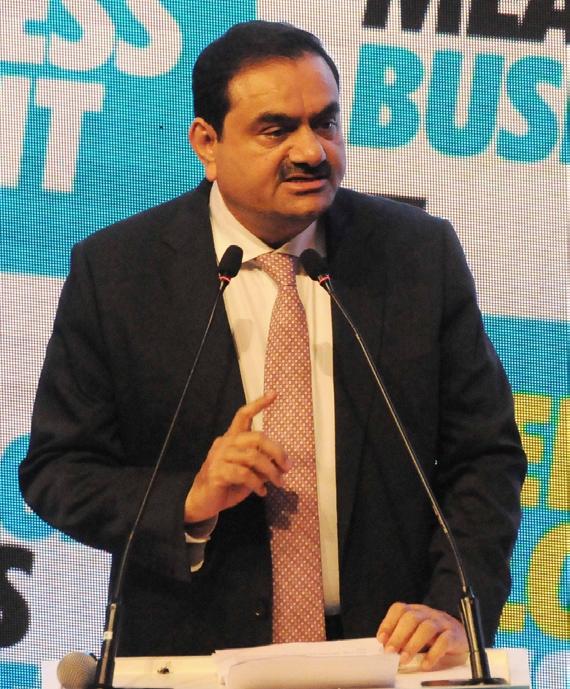
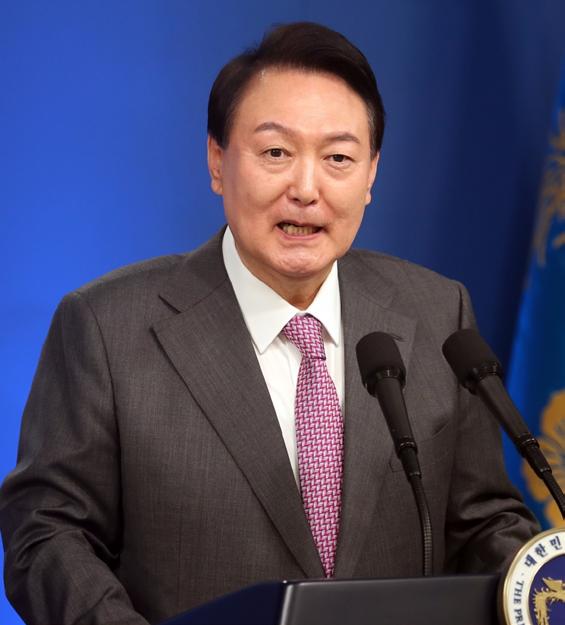
Can Sri Lanka downgrade from middle-income to low-income country to get foreign funds?
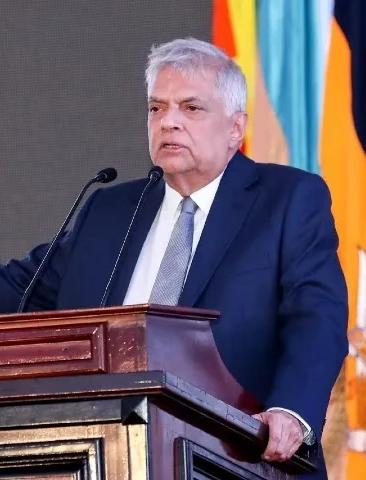
New Delhi, Oct 11: With Sri Lanka still on a weak wicket on the economic and financial fronts, it is looking at newer ways to access finances. The government is debating a proposal to downgrade the country from a middle-income to a low-income country in a bid to get concessionary loans meant for vulnerable countries. If the cabinet clears the proposal, the government will convey the change in the country’s status to the World Bank, reported Sri Lankan newspaper, The Sunday Times. Associate Professor in the Department of International Relations at the South Asian University (SAU), Dhananjay Tripathi told India Narrative that Sri Lanka once had high human development indicators in South Asia. “That the country is now thinking of downgrading itself, shows the objective reality in the country. There is a lot of financing available for low-income countries from various international organisations. Also, these loans can be accessed at low interest rates”. Tripathi highlighted that Beijing is still not forthcoming on restructuring Colombo’s debt. “China has been giving loans to the least developed and the developing countries. Many of them, including Sri Lanka, are not in a position to repay those loans. If China announces a debt-restructuring plan for Sri Lanka, many other nations across the world will expect China to waive off their loans as well. This poses a dilemma for China also,” says Tripathi. He says that with other lenders like Japan and India supporting Sri Lanka over debt restructuring, a way out for China may be to cut a deal with Sri Lanka quietly. For almost a year now Sri Lanka has been facing a severe economic crisis. During this time it has faced a food crisis, a fuel and power shortage and mass unrest which often turned violent and paved the way for the deposing of the powerful Rajapaksa family from the top echelons of power. For the first time in history Sri Lanka announced in early 2022 that it will not be in a position to meet its foreign debt obligations. With most countries staying away from Sri Lanka’s economic crisis, India became the only country to step in with a $4 billion support in various forms to avert a humanitarian crisis in the island nation. Though with a change in the government in Colombo, the global sentiment towards the country has improved, Sri Lanka still faces a crisis of inflation, low foreign reserves and raising bail-out funding. The Sri Lankan media reported that a downgrade will enable the country to “obtain concessionary funding from the International Development Association (IDA) -- an arm of the World Bank that helps the world’s poorest and most vulnerable countries.” This move also indicates that Sri Lanka does not have the creditworthiness to borrow on market terms, therefore, will need concessional resources to finance its development. Meanwhile, with the 2022 annual meetings of the International Monetary Fund (IMF) and the World Bank taking place today, the Sri Lankan Finance Minister Shehan Semasinghe is leading a team to Washington to negotiate funding for the cash-strapped country. (The content is being carried under an arrangement with indianarrative.com)
Iran to send delegation to Vienna for talks with IAEA: FM
Tehran, Nov 3 (IANS) Iranian Foreign Minister Hossein AmirAbdollahian has said that an Iranian delegation will travel to Vienna in the coming days for talks on enhancing cooperation with the International Atomic Energy Agency (IAEA), state media reported. Speaking to a joint press conference with his visiting Syrian counterpart Faisal Mekdad in Tehran, AmirAbdollahian on Wednesday added that President of the Atomic Energy Organization of Iran (AEOI) Mohammad Eslami and IAEA Director General Rafael Grossi have agreed on the arrangement. He expressed hope for progress to be made in the talks as long as the IAEA sticks to a technical approach and follows an agreement it reached with AEOI on the nuclear watchdog’s “certain accusations against Iran”. Amir-Abdollahian was referring to the IAEA report of Iran not providing “technically credible explanations” for nuclear activities at three undeclared sites, and the ensuing anti-Iran resolution passed by its Board of Governors in June. Iran has repeatedly said the claims are based on “fabricated and false information”. Besides, indirect exchange of messages still continues between Tehran and Washington over the nuclear talks in Vienna, Amir-Abdollahian noted. Iran signed a nuclear deal, formally known as the Joint Comprehensive Plan of Action (JCPOA), with world powers in July 2015, agreeing to curb its nuclear programme in return for removing sanctions on the country. However, Washington quit the agreement and reimposed unilateral sanctions on Tehran in 2018, prompting the latter to drop some of its commitments under the pact, Xinhua news agency reported. The talks on the JCPOA’s revival began in April 2021 in Vienna. No breakthrough was achieved after the latest round of talks in early August.
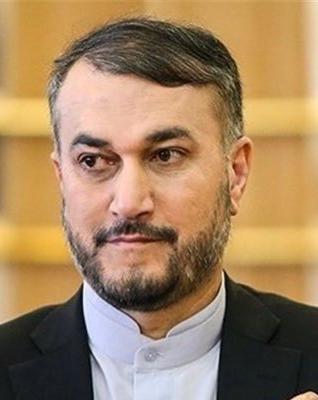
Pakistan is out of FATF Grey List, but will leopard change its spots on proxy terror?
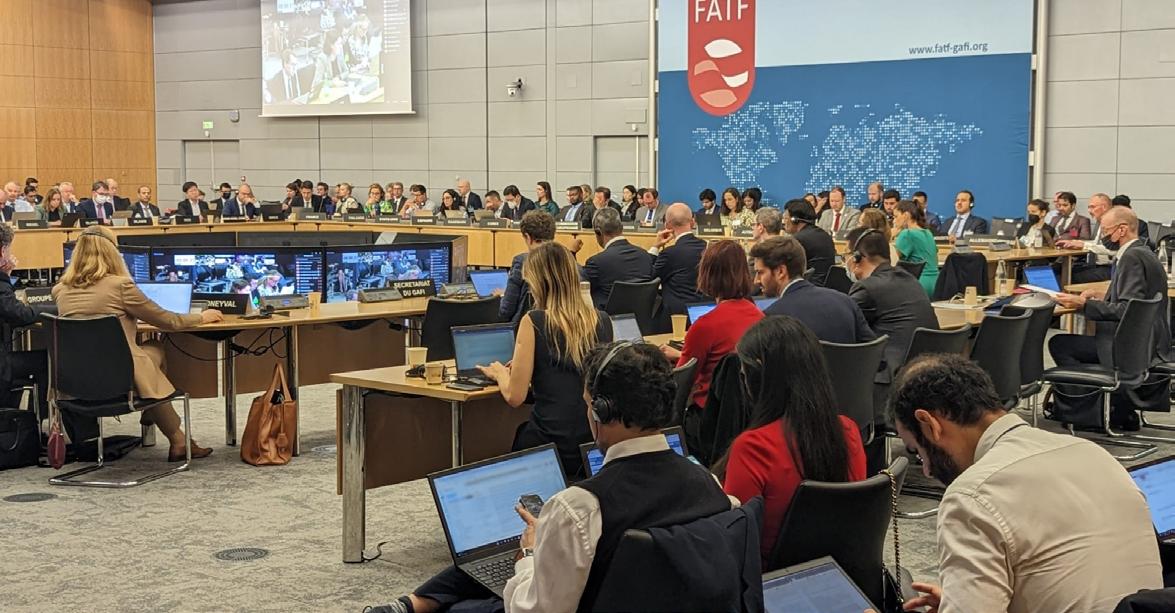
Islamabad, Oct 25 (IANS) The Financial Action Task Force (FATF) removed (October 21) Pakistan from its “grey list” after more than four years. The multilateral watchdog said Islamabad would continue its work to further improve systems to combat terror financing and money laundering. At the conclusion of FATF’s twoday plenary meeting in Paris, the body’s president, T. Raja Kumar of Singapore, announced that Pakistan was being taken off the grey list in line with a consensus decision by the watchdog’s 39 member countries. The reforms carried out by Islamabad were good for the security and stability of Pakistan and the region, he said. While Pakistan may have exited from the ‘Grey List’, its history of support to terrorist individuals and entities shows that it is unlikely to reform itself into a good cop overnight! A recent article by Aparna Rawal for South Asia Voices (October 17) informs that the deep state in Pakistan remains synonymous with an intricate network of terror, narcotics and funding which span the globe. At the forefront of Pakistan’s operations is D Company and Haqqani Network. Most of these crime syndicates thrive through extortions, violence, kidnappings and even assassinations while re-routing funds through formal channels like charities or legitimate business enterprises. A quick glance at the past shows how the deep state in Pakistan used money laundering for terror and narcotics trading in its global operations. Pakistan’s Inter-Services Intelligence (ISI) is known to support various entities, terror outfits or rackets which would benefit their well-articulated “Gazwa-i-Hind” (bleed India with thousand cuts) strategy against India and which will also allow them to exert their influence in the South Asian regions by all possible means. This is also one of the reasons why Dawood Ibrahim proved to be effective. To be indispensable to the ISI, he funded ISI-funded terror organizations, while in exchange he received ISI protection. This arrangement served the twin purposes, of firstly, providing a front for ISI’s dealings with terror outfits and secondly, for moving funds required to covertly support the outfits. Since 2016, the ISI has been aggressively and covertly operating in activities to destabilize India. There have been many Pakistani sleeper cells active in India, with the D Company’s affiliations. Arms transportation and terror funding are becoming more evident through the hawala channels. Several ISI-trained components are being tasked to carry out reconnaissance missions against India. Recently, the D Company-ISI hand was exposed through various crackdowns on terror modulesconducted by Indian security agencies. On September 22, an ISI agent Lal Mohammed was shot dead in Nepal. He delivered counterfeit Indian currency from Nepal, Pakistan and Bangladesh to India. Lal used to provide logistical support to ISI and had links to Dawood Ibrahim and his D Company. Apart from D Company’s own terrorist activities, the organization has maintained relations with other terror outfits and even made donations to them through their front companies. On September 26, Riyaz Bhatti was also arrested in an extortion case. Besides, henchmen employed for extortion and other criminal activities, Dawood has several agents who make investments on his behalf worldwide. Rasheed Saeed is a known D Company agent who reportedly handles the revenues coming to the company under Chhota Shakeel. Saeed’s cover has been managing director of a Mumbai-based events company that is known for hosting promotional events for Bollywood films. Tiger Memon continues to be a partner in a firm that deals in steel exports. Recently, five of D Company’s operatives were arrested by the Mumbai Crime Branch, Anti Extortion Cell. This occurred, months after Dawood’s close aide, and brother-in-law of Chota Shakeel, Salim Fruit was arrested in August 2022 by the NIA. He was accused of extorting Rs 62 lakh. In this context, it is important to mention that most cases relating to money laundering have their origins in the covert support provided to the Mujahideen in Afghanistan, by Pakistan’s ISI. The informal channels stem from the mutual understanding for support of the mujahideen cause, which was not limited to a particular region, but extended to a global network for waging jihad. For several years, Pakistan’s ISI funnelled money to the Mujahideen in Afghanistan with the help of the Bank of Credit and Commerce International, founded by Agha Hasan Abedi, a Pakistani businessman. Its primary purpose was ostensibly to fund armed groups abroad. The Bank of Credit and Commerce International was also responsible for transferring funds and arms to the IranContra arms deal. From the 1970s to the 1980s, Bank of Credit and Commerce International had set up a quid pro quo approach with all their clients. It would provide unsecured loans to its wealthy clients in exchange for access to the global markets. Their clients included a Saudi financier who received a loan of $500 million and in return was entrusted to buy a controlling interest on Bank of Credit and Commerce International’s behalf in two American banks. The organization became famous for providing unsecured loans to wealthy investors in the Middle East. Iraqi leader Saddam Hussein, another client of BCCI, was able to utilise their service to transfer most of his oil revenue to investments globally. This also included the clandestine funding of politically volatile projects such as Pakistan’s nuclear programme in the 1980s. In June 2018, the FATF had placed Pakistan on its list of countries under increased monitoring, or the so-called grey list, for its failure to tackle terror financing, especially the activities of UN-designated terror groups such as Lashkar-e-Taiba and Jaish-e-Mohammed. Pakistan was given two action plans with 34 action items to strengthen its ability to counter both fund-raising by terrorists and money laundering. FATF action against Pakistan demonstrates the urgent global requirement to cut terror funding to contain terror activities in the South Asian region. The lesson learnt is that while Pakistan has exited the grey list, hidden below the surface, it is business as usual for the deep state. Nothing is likely to ever change in Pakistan!
Portugal, Spain to duly present ‘Green Energy Corridor’ plan to EU
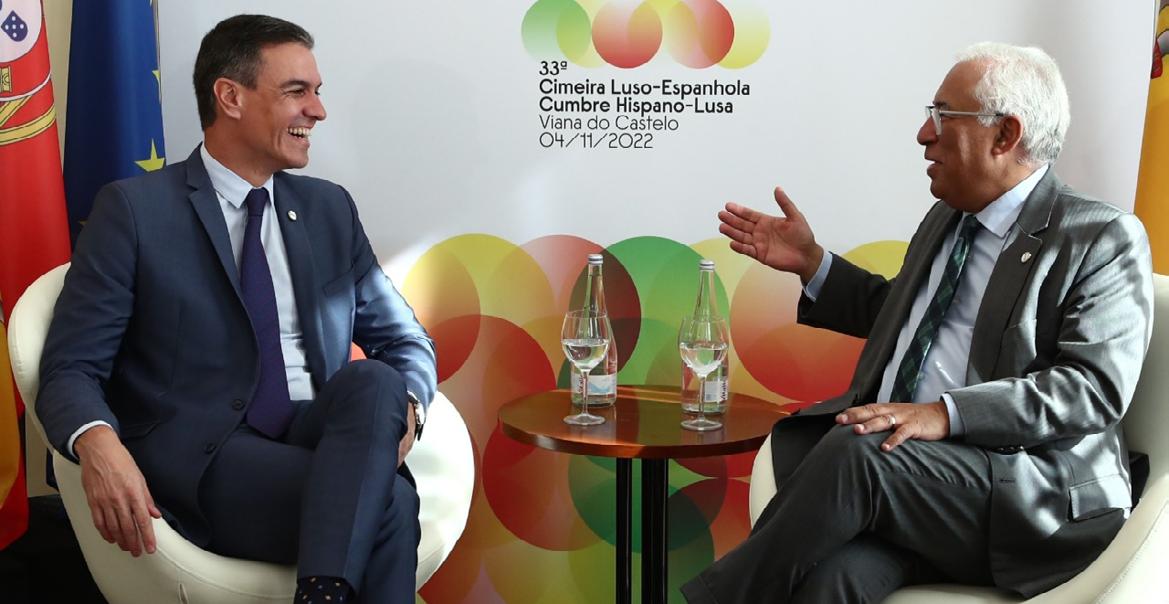
Lisbon, Nov 5 (IANS) The Portuguese and Spanish governments announced the decision to present the financing plan for the “Green Energy Corridor” with France before December 15 as required by the European Commission. As part of the 33rd Iberian Summit in the city of Viana do Castelo, Portuguese Prime Minister Antonio Costa said that the project starts with the construction of an “energy storage center” in Caceres in western Spain’s Extremadura region, reports Xinhua new agency. Costa welcomed the agreement reached by Portugal, Spain and France at a joint press conference with the Spanish Prime Minister Pedro Sanchez at the end of the 33rd PortugueseSpanish summit. “I want to guarantee that electrical interconnections are also included in this agreement and that Spain will fulfill, as it could not fail to be, its commitment,” Sanchez said. The two Prime Ministers pledged to “give top priority to the conclusion of the renewable gas interconnection” in the agreement. “Given the European dimension of this project, (the governments) will work closely with the European Commission in the coming weeks, namely to identify sources of European funding,” they said in a joint statement. Concerning the production of renewable energy, they highlighted “the potential importance of offshore renewable energy sources and agreed to cooperate and accelerate their production by 2030”. Costa said that the Recovery and Resilience Plan envisages constructing two roads between the Portuguese districts of Portalegre and Faro, and the Spanish border, besides increasing the rail connection between the two countries.
Italian economy facing downgrades amid inflation, energy concerns
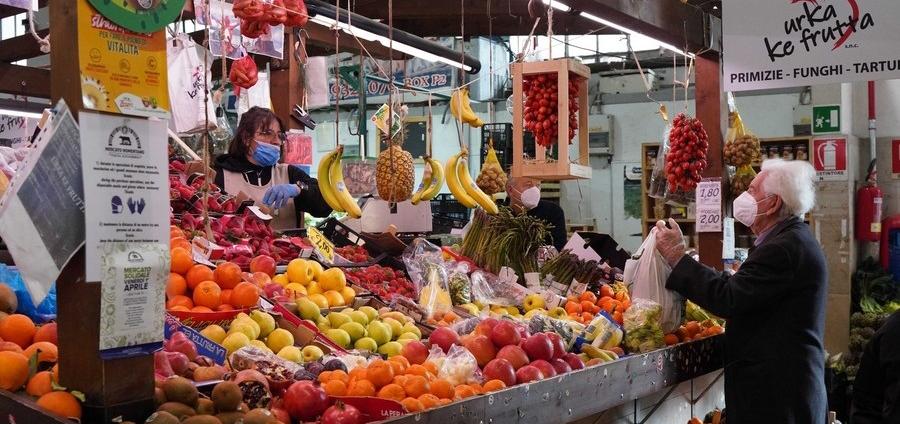
Rome, Nov 3 (IANS) Ratings agency Moody’s has downgraded its outlook on Italy’s economy, the latest in a series of worrying signs for the country. Moody’s on Wednesday slashed its assessment of the country’s banking system from “stable” to “negative”, and said it expects conditions for the banking sector to deteriorate further over the coming 12 to 18 months, especially with regard to the performance of bank loans and broader earnings, reports Xinhua news agency. The news came in the wake of a series of downgrades in medium-term growth prospects for the economy from the Bank of Italy, the National Institute of Statistics (ISTAT), business lobby organisation Confindustria, the Organization for Economic Cooperation and Development, and the European Commission. In the most recent of these reports, ISTAT revealed that preliminary figures showed the economy grew by a stronger-than-expected 0.5 per cent in the third quarter of the year. However, ISTAT expected economic growth over the fourth quarter to be negative. The consensus among growth models is that the Italian economy will be flat next year after growth of around 3 to 3.5 per cent this year. On Wednesday, Moody’s was even more cautious, predicting 2.7 per cent growth for this year as a whole, and zero growth in 2023. The challenges go beyond economic growth. The impacts of the war between Russia and Ukraine have pushed prices to record highs -- the latest data shows Italy’s annual inflation rate hit 11.9 percent in October -- and sparked worries about access to energy and the reliability of key supply chains. Additionally, the fact that the euro has mostly traded in negative territory compared to the US dollar since August has eroded the buying power of Italian companies and residents. On Monday, Bank of Italy Governor Ignazio Visco called for the European Central Bank to raise interest rates in order to defend the euro against the dollar and other currencies. These factors have contributed to a broad decline in stock prices -- the Italian Stock Exchange in Milan is down nearly 20 per cent this year, despite minor gains in recent sessions -- and an increase in yields for government bonds. Italy’s benchmark 10-year bond has traded almost exclusively above the 4 per cent threshold since late September, and was at 4.3 per cent at the close of Wednesday’s session. Aside from a brief spike in June, the yield had not topped 4 per cent since 2014. Higher bond yields are a reflection of investor nervousness about an economy. Italy is Europe’s fourth largest economy, and the third in the 19-nation eurozone. According to the most recent estimates, the country’s economic growth rate this year should surpass the eurozone average, before falling back below the average in 2023.
Ukraine to get new military, humanitarian aid from Spain
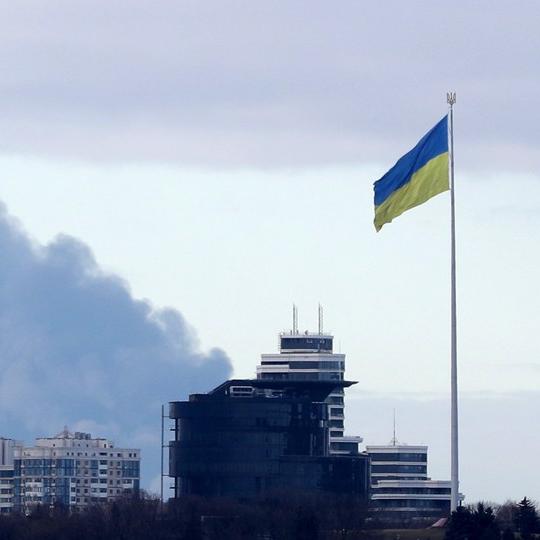
Kiev, Nov 3 (IANS) Ukrainian Foreign Minister Dmytro Kuleba said that his war-torn country will soon get new military and humanitarian assistance from Spain. At a joint press briefing after talks with visiting Spanish Foreign Minister Jose Manuel Albares, Kuleba said on Wednesday that soon Ukraine will receive from Spain a battery of the Aspide anti-aircraft missile system and missiles to it, reports Xinhua news agency. Spain will also transfer to Ukraine four Hawk air defence systems, anti-tank missile systems, guns and shells, as well as other military equipment as part of a new military aid package, Kuleba added. For his part, Albares said Spain is donating 30 ambulances to Ukraine, and will soon deliver five groups of electricity generators to power Ukraine’s medical facilities.
Finnish NATO proposal assesses effects of membership
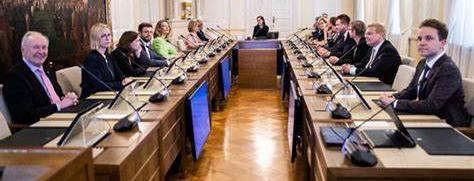
Helsinki, Nov 4 (IANS) The Finnish government has published a draft proposal on the country’s accession to the NATO, but the local media has claimed that the membership would have a significant financial impact on the Scandinavian country. The draft proposal was prepared by a working group composed of representatives from the Office of the President of the Republic, the Prime Minister’s Office, the Ministry for Foreign Affairs and the Ministry of Justice, among others. The working group has assessed the relationship between the North Atlantic Treaty and Finland’s Constitution, and concluded that the North Atlantic Treaty would not be a problem for Finland’s sovereignty and participation in international cooperation. The government says Finland’s NATO membership could be approved by a simple majority in Parliament. However, NATO membership will increase Finland’s public spending on defence, said national broadcaster Yle in an article published on the same day. NATO countries pay contributions for their membership in proportion, which are calculated in relation to the size of their economies. According to Yle, Finland’s share of NATO co-financing would be 0.9057 per cent. Finland’s contributions would be 27.4 million euros a year if the country became a member of NATO at the beginning of next year. This figure will probably rise in the future, Yle said. NATO’s member states decided at a summit in Madrid this summer to raise jointly financed budgets, it added. Additional costs would come with the personnel increases and administrative changes related to NATO membership. These costs have been calculated at more than 100 million euros annually. NATO member countries are also committed to the fact that they aim to increase defence spending to 2 per cent of their gross domestic product. The share of Finnish defence spending this year is 1.87 per cent. According to Yle, the draft proposal does not take a position on whether nuclear weapons will be placed in Finland after accession, although the topic has been much-discussed by the public. Currently, the Nuclear Energy Act would prevent a ship or aircraft equipped with nuclear weapons from entering Finland.
20 bodies found after boat capsizes off Greek island
Athens, Nov 3 (IANS) Greek rescuers have recovered the bodies of 20 migrants who drowned after their boat capsized off the island of Evia in the Aegean Sea, local media reported. Twelve people have been rescued during an operation on Wednesday hampered by strong winds, Xinhua news agency quoted the local media as saying. Survivors told the authorities that 68 people were on the boat when it sank on Tuesday in the area of Cape Kafireas. The migrants were from Egypt, Afghanistan and Iran, Hellenic Coast Guard spokesperson Commander Nikos Kokkalas told Greek national broadcaster ERT. More than one million people have entered Greece illegally since 2015 and most of them have continued their journey to other European countries, while hundreds have drowned at sea, according to authorities.

Most French people worried about level of inflation: Survey
Paris, Nov 4 (IANS) More than nine out of 10 French people are concerned over the level of inflation in France, a local media report said citing a survey. The economic morale index is at its lowest, with 78 per cent of respondents saying they are “less confident”, compared to 22 per cent who are “more confident”, BFM Business reported on Thursday citing a survey carried out by Odoxa. Some 75 per cent of respondents believe that the country’s economic difficulties will be more severe in 2023, and the level of inflation estimated by the French is 12.5 per cent, Xinhua news agency quoted BFM as saying. According to the latest report by the National Institute of Statistics and Economic Studies (INSEE), the country’s consumer price index (CPI) is estimated to rebound to 6.2 per cent. President of Odoxa, Gael Sliman, told BFM Business that the French believe that inflation is as twice as high as the level reported by INSEE. More than a third of respondents believe that inflation is above 15 per cent, BFM Business reported. According to a survey carried out on October 26 and 27 with 1,005 French people over 18 years old, 46 per cent of respondents said they have already used up their savings or have taken out one or more loans to meet daily expenses.
Pakistan ready to give Tajikistan ‘access to Gwadar, Karachi ports’
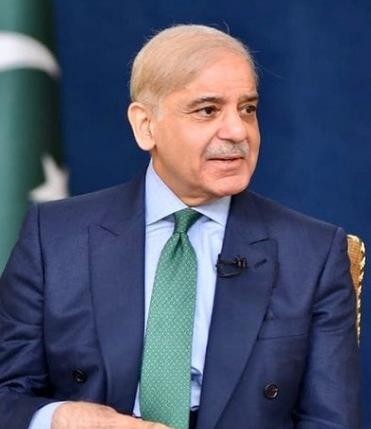
Astana, Oct 13 (IANS) Pakistan Prime Minister Shehbaz Sharif on Thursday, while highlighting the importance of promoting connectivity in the region, reiterated Pakistan’s readiness to provide access to Tajikistan to Gwadar and Karachi ports, media reports said. In a meeting with President Emomali Rahmon in Kazakhstan’s capital Astana, Sharif emphasised the expansion of cooperation in the field of road transport and air links, Express Tribune reported. The two leaders, who met on the sidelines of the 6th Summit of the Conference on Interaction and Confidence Building Measures in Asia (CICA), agreed on cementing high-level contacts, inter-parliamentary ties, and technical-level meetings to further promote substantive cooperation. The Prime Minister underscored the need to boost cooperation in the energy sector. It was agreed to work together for the early completion of CASA 1000 project, which would be a harbinger of future energy corridors with Central Asia, Express Tribune reported. Sharif also updated the Tajik President on the rehabilitation work being undertaken by his government in the aftermath of the catastrophic floods in the country. He stressed the need to make joint efforts to cope with the rising threat of climate change-induced natural disasters. The two leaders also discussed regional and global issues of mutual interest and agreed on the need to work together to strengthen peace, stability and security in the region. Both sides also agreed to strengthen their engagement for fostering greater economic cooperation, particularly in the areas of trade, energy and connectivity.
Russia seeks to refurbish its image in Central Asia
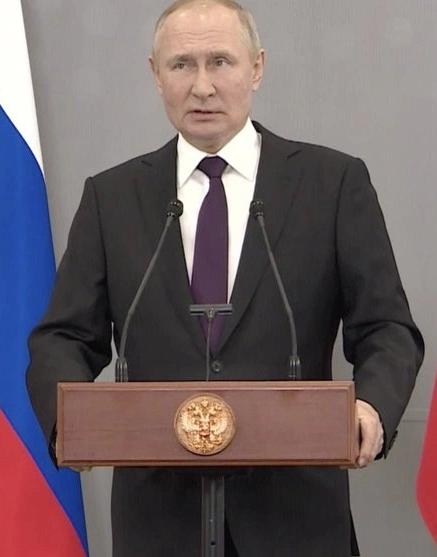
By Aditi Bhaduri New Delhi, Oct 19: On October 14, Russian President Vladimir Putin participated in the first-ever dialogue between Russia and the five Central Asian Republics (CARs) of Kazakhstan, Kyrgyzstan, Tajikistan, Turkmenistan, and Uzbekistan through the Russia - Central Asia Forum in Astana. Nothing unusual given that these are all former Soviet Republics and form part of Russias traditional and centuries-long sphere of influence, something that predates even the former Soviet Union. However, what is interesting is that this is the first ever RussiaCentral Asia dialogue. Dialogues with the CARS is the flavour of the season. Earlier this year India convened a summit with heads of states of the CARS in a virtual format. As news broke of India’s plans, China hastily convened one. The US, European Union, and Japan all convened their own dialogues in this format. Yet, it took Russia this long to convene one. Coming as it did immediately after the annual meeting of the Council of Heads of State of the Commonwealth of Independent States (CIS) of which all six are member states, does this signify a renewed Russian interest or diminished Russian influence in the region? That Russia may not have felt the need for holding a Russia-C5 dialogue may not be surprising. There are, after all, a number of other mechanisms and platforms where all parties get to interact and engage with each other. Prime amongst them, apart from the Commonwealth of Independent States (CIS) platform, are the military Moscow-led Collective Security Treaty Organisation (CSTO), and the economic Moscow-led Eurasian Economic Union. Yet, Central Asia’s centrality to Moscow’s sphere of influence, and in particular the Putinfloated Greater Eurasian Partnership cannot be disputed. With the breakup of the Soviet Union, the Baltic States, never quite acquiescing to the Soviet Union immediately moved away from Moscow. In the subsequent decades, Moscow’s influence in the South Caucasus also diminished, given the war with Georgia and Azerbaijan’s resource and financial independence. Armenia was the only republic solidly allied with Russia in the region. From 2014, Russia became alienated from fellow Slavic republic Ukraine with a full blown war taking place now. That leaves only the Central Asian Region allied with Moscow. Here too, from time to time states have flexed their muscle. For instance, Uzbekistan left the CSTO in 2012. Yet, economic and security dependence assured that this region remained within Russia’s strategic radar. From 2013, China began making inroads economically with its massive investments and trade opportunities for its Belt and Road Initiative (BRI). Nevertheless, the Ukraine conflict has effected rethinking and thrown things in sharp relief. First, the conflict coincides with the CARS celebrating their 30 years of independence and sovereignty which makes greater autonomy and independence in domestic and foreign affairs inevitable. Second, when Kazakh President Kassym Jomart Tokayev spoke at the St. Petersburg Economic Forum about the sanctity and sovereignty of nation states alluding to their non-recognition of the independence of the Donetsk and Luhansk Regions, he spoke for the other CARS. Territorial sovereignty is a sensitive issue for all the CARS, not only in relation to Russia, but also in terms of the region. Ever since the demise of the Soviet Union, the region has been marked by a series of border conflicts, from between Kazakhstan and Uzbekistan, (now settled), to the one ongoing between Kyrgyzstan and Tajikistan. Besides, of course, all the countries have sizeable Russian populations and some border Russia, and would wish to prevent any similar Russian military intervention against them, similar to the one in Ukraine or earlier in Georgia. Third, while Russia remains the major economic partner and investor in most of the CARS, Western sanctions against it has spooked many of them, necessitating ways to bypass them. For instance, Kyrgyzstan, more economically dependent on Russia, has refused to use the Russian MIR cards, in a bid to hedge itself from Western wrath. Finally, and perhaps more importantly, Russia’s military distraction has meant a less effective CSTO. Even powerful states like Kazakhstan have felt the need to call in CSTO help when it was wracked by large scale domestic violence in the beginning of this year. But it also had to soon get the CSTO to remove its troops from Kazakh territory in deference to popular will. More recently in the conflict between Azerbaijan and Armenia, a CSTO member, the CSTO was nowhere to be seen. Similarly, a fierce conflict rages on between Kyrgystan and Tajikistan, on the border with the CSTO playing almost no role. With the Taliban back in Afghanistan, and insurgency, alleged to be backed by “foreign forces” rearing its head in a number of states this year alone in the region, the security alliance matters more than ever to the region. It is here that Russia has felt the need to reassure the region of its support. This is where the dialogue between Russia and the CARS assumes salience. In spite of the discomfort felt with the Russia-Ukraine conflict, Russia still remains central to both security and the economy in the region. Russia remains the leading investor in the Central Asian economies, with direct investment amounting to almost US$5 billion. Not only have Russia’s trade with these countries doubled in the last five years, reaching $37.1 billion, but have actually increased this year by another 16 per cent, that is after the beginning of the Ukraine war. Even Kazakhstan, whose president has been most outspoken, has seen its bilateral trade with Russia increase since the commencement of the Ukraine conflict to $12 billion, an increase of almost 30 per cent from 2021; it uses Russian territory for access to the Arctic Sea and the Northern Sea Passage, which is important for this landlocked country, and Russian pipelines to transport its oil. In fact, the conflict has helped increase the turnover of the CARS with its Western partners with a lot of re-export to Russia, hit by the sanctions. Further, countries like Kyrgystan, Tajikistan, and Uzbekistan have sizeable populations living and working in Russia, sending back remittances which make significant contributions to the economies of their home countries. While Ukraine has led to a number of such migrants returning because of curtailed employment opportunities they still remain a potent source of income. Given all this, and the Western boycott of Russia, it may have been prompted to renew its interest in a region it has long held as its own. In his speech to the forum Putin outlined this: “Russia’s reorientation of exports and imports is stimulating the development of transport corridors throughout the Greater Eurasia region. The key task is to develop new trans-Eurasian corridors passing through the territories of your countries: East-West, North-South and Europe-Western China. The introduction of information technologies and the use of artificial intelligence, as well as the development of border checkpoints for the seamless transportation of goods and cargo can significantly accelerate cargo flows.” With the region being so central to the Greater Eurasian Partnership, Russia may now be directing more investments - earlier directed to the West - towards the region. Security is another aspect that Russia has had to reassure its Central Asian partners in. That was the basis for a trilateral dialogue between Putin and his Kyrgyz and Tajik counterparts Sadyr Japarov and Emamoli Rahmon respectively, where the border conflict between Kyrgyzstan and Tajikistan and ways to settle it were discussed. Another area that Putin reminded his Central Asian counterparts about Russia’s centrality in preserving the region’s security was Afghanistan. “A hotbed of tensions is indeed smouldering on our southern borders with the potential to unleash waves of refugees, terrorist threats and the spread of extremist ideology. In the process, Western secret services, primarily American and British, are cultivating units that are opposing the Taliban, pointing them in the direction of the border areas of some of our countries to shell,” Putin underscored in his speech. Rationalising Russia’s recent outreach to the Taliban promising financial and energy aid, Putin promised to shore up collective security for the region, implying Western interference and raising the spectre of yet another civil war in that country. The security promise was renewed by the Director of Russia’s Foreign Ministry’s Department for New Challenges and Threats Vladimir Tarabrin at a high level conference on terrorism in Dushanbe yesterday. What does all of this point to -- a diminished Russian role in the region or a lack of Russian interest there? Or a possibility that one may have fed into the other? Whatever the probability, one thing is sure. Even a diminished Russian role does not take away from the fact that the destinies of the CARS and Russia remain deeply intertwined with each other, and will continue to be so in the foreseeable future. And a hitherto West-centric Russia may rediscover anew the opportunities abounding in its near abroad. (The content is being carried under an arrangement with indianarrative.com)

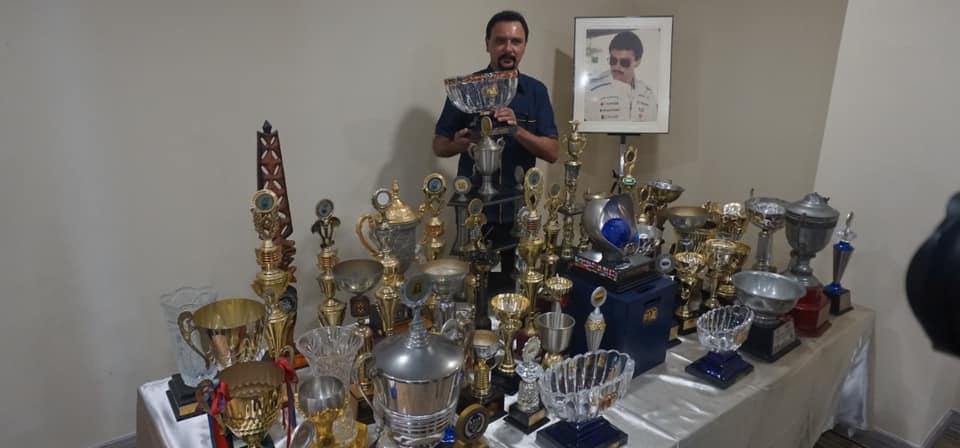
Kuala Lumpur, Oct 26 (IANS) Malaysian-Sikh rally racer Karamjit Singh has made history by winning three championships at the three-day motorsport rally in Jambi, Indonesia. The hexagenarian racer, who is famous as the ‘Flying Sikh’ in Malaysia, used a 16-year-old national car -- a Proton Gen2 -- to bag 12 trophies in the three championships he participated in with teammate and co-driver Jagdev Singh, local media reports said. Singh’s Proton Gen2, which he calls ‘outdated’, managed to beat a more sophisticated car worth RM1.5 million. “I really have a passion for this. Even though I don’t have a sponsor, I use my own money and an old machine, but I can still beat the more modern cars,” Singh was quoted as saying in New Strait Times. “Motorsports is expensive, but with the effort and help from other competitors from Indonesia... I was able to achieve this success, and I want to chase many more successes,” Singh told reporters upon his arrival at the Kuala Lumpur airport. The Proton Gen2 2.0L Turbo 4WD also helped him win the Malaysian National Rally Championship 2022 in Pahang
two months ago. Singh had managed to dominate this year’s Asia-Pacific Rally Championship (APRC) circuit in the fifth round of the M3 Sprint Rally event last week, before winning the Indonesian Rally Championship in the third and fourth round of the National Rally event in the weekend, New Strait Times reported. Launched in 1988, the annual APRC, which comes under the Federation Internationale de l’Automobile (FIA), could not be held in 2020 and 2021 due to the Covid-19 pandemic. The APRC covers motorsport events in India, Japan, Indonesia and China. Singh became the first Asian driver to win FIA Production Car World Championship for Drivers. He has been rallying professionally since 1985. He has won the 2001 Asia Pacific Rally Championship for Drivers, the 2002 FIA Production Car World Championship for Drivers, as well as the 2002 and 2004 FIA Asia Pacific Rally Championship for Drivers. Foreign tourists to Cambodia’s Angkor up 2,224%

Phnom Penh, Nov 4 (IANS) Cambodia’s famed Angkor Archaeological Park received 169,349 international tourists in the first 10 months of 2022, up 2,224 per cent compared to the same period last year, said an official report on Friday. The park made $6.76 million in revenue from ticket sales during the January-October period this year, up 2,155 per cent year-on-year, the stateowned Angkor Enterprise’s report revealed. Holidaymakers from 125 countries and regions visited the site during the period, Xinhua news agency quoted the report as saying. Located in the Siem Reap province, the 401-square-km Angkor Archaeological Park, inscribed on the Unesco World Heritage List in 1992, is the most popular tourist destination in the Southeast Asian country. The Park contains the remains of the different capitals of the Khmer Empire, from the 9th to the 15th century, including the famous Temple of Angkor Wat. During the pre-Covidera, the Angkor park received up to 2.2 million international visitors in 2019, generating $99 million in revenue from ticket sales, the Angkor Enterprise said. According to Prime Minister Hun Sen on Thursday, high vaccination rates have in part helped revive the kingdom’s tourism industry. He said Covid-19 vaccines have built herd immunity in Cambodia that has allowed the country to reopen its borders with confidence since late 2021.
UN chief highlights cities’ role in promoting global sustainable development
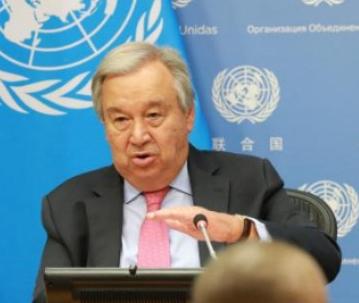
United Nations, Nov 1 (IANS) Accounting for a majority of global carbon emissions, cities play critical roles in building a sustainable world for all, UN Secretary-General Antonio Guterres said. Guterres underscored the point in a message on World Cities Day, which was observed on October 31. This year’s theme for the international day is “Act Local to Go Global”. Today, more than half of all people live in urban areas and over two-thirds will do so by 2050, he added. Cities, generating more than 80 per cent of global GDP, “account for over 70 per cent of carbon emissions,” which means that implementation of the Sustainable Development Goals happens largely in cities, the UN chief noted. Many cities are already leading the transition to renewable energy, setting credible net-zero targets and building climate-resilient infrastructure, Xinhua news agency reported. “I encourage them to work with their governments and sister cities across the world to share experiences and help raise ambition,” Guterres said. The actions cities take locally to create a sustainable world will reverberate globally. And the transformative policies cities pioneer today can catalyse change that will save lives and livelihoods everywhere tomorrow, he added.
Philippines’ inflation rate accelerates to 7.7%, highest since 2018
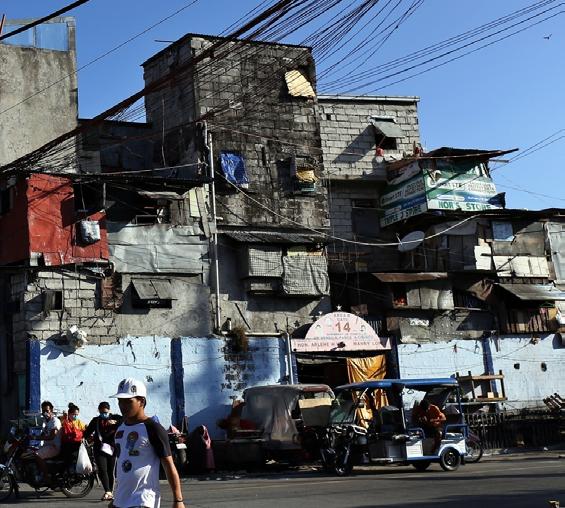
Manila, Nov 4 (IANS) Yearon-year inflation rate in the Philippines accelerated to 7.7 per cent in October from 6.9 per cent in September, the highest since October 2018, officials said on Friday. The Philippine Statistics Authority (PSA) said that with October’s figure, the average inflation rate stood at 5.4 per cent from January to October 2022, reports Xinhua news agency. In October 2021, the inflation rate was at 4 per cent while the core inflation rate was 2.5 per cent. PSA head Dennis Mapa said in a news conference the October inflation rate was driven by faster inflation rate in key commodity groups, particularly food and non-alcoholic beverages, which rose to 9.4 per cent from 7.4 per cent in September. Among the top contributors to October 2022 inflation are meat, fish, and vegetables; electricity, gas, and other fuels; operation of personal transport; food and beverage services; passenger transport services; and housing rentals. Socioeconomic Planning Secretary Arsenio Balisacan attributed the surge in prices to “external price pressure”, like the Russia-Ukraine conflict, which has disputed global supply chains. The “lingering aftermath of recent typhoons that hit the country in late September” also drove the October inflation rate, added Arsenio. The PSA said the core inflation, which excludes volatile food and energy items in the headline inflation, rose to 5.9 per cent in October from 5 per cent in September.
Singapore, Oct 25 (IANS) Singapore’s Deputy Prime Minister Lawrence Wong announced on Tuesday that the city-state hiked its national climate target to achieve net zero emissions by 2050 as part of its Long-Term Low-Emissions Development Strategy. He said at the Singapore International Energy Week (SIEW) 2022 that Singapore will enhance its 2030 Nationally Determined Contributions by aiming to peak its emissions earlier and reduce its emissions to around 60 million tonnes of CO2 equivalent in 2030, which is 5 million tonnes less than the previous commitment of peaking the emissions in 2030 at 65 million tonnes of CO2 equivalent. “This 5 million tonnes improvement is significant,” Wong added. “It is equivalent to reducing our current transport emissions by two-thirds.” He said that Singapore will submit the enhanced targets to the UN Framework Convention on Climate Change (UNFCCC) as parties to the Paris Agreement meet at COP 27 next month, in line with the Glasgow Climate Pact, reports Xinhua news agency. To achieve net zero emissions, the Singapore government will need to encourage businesses and individuals to be more energy efficient, reduce energy consumption and carbon emissions and adopt green energy alternatives, said Wong. He said that the government decided that a better approach is not to reduce or hold back the carbon taxes but to provide targeted relief to businesses and consumers so that it has the right
price signals for the economy as a whole and the government will extend help to those who need it. Wong announced earlier this year that Singapore will raise the carbon tax from the current S$5 per tonne of CO2 equivalent to about S$50-80 by 2030. The carbon tax in Singapore is applied broadly, covering about 80 per cent of its emissions today. Besides, Wong said at the SIEW that the Singaporean government will invest more in technologies to help decarbonise the economy. The Deputy Prime Minister also announced at the SIEW the launch of Singapore’s National Hydrogen Strategy which will provide a roadmap of how hydrogen can support Singapore’s decarbonization efforts, and the steps Singapore will be taking to prepare Singapore for a hydrogen future. This is part of Singapore’s international climate commitment to achieve net zero emissions by 2050. “If technology continues to advance, we foresee that hydrogen can supply up to half of our power needs by 2050, alongside domestic renewable energy sources and electricity imports,” Wong said. He disclosed that Singaporeans may start to have access to electricity generated from low-carbon hydrogen from 2027. 17 leaders of G20 confirm their attendance for Bali summit

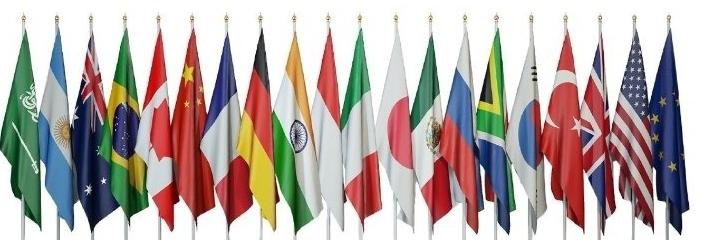
Jakarta, Nov 4 (IANS) Seventeen leaders of the G20 member nations have confirmed their attendance at the summit to be held in Bali on November 15-16, Indonesian Foreign Ministry spokesperson Teuku Faizasyah said. Faizasyah was reluctant to name the other three leaders who have not declared their presence for security reasons, reports Xinhua news agency. “This is related to security aspects and other things that need to be taken care of before the event,” the spokesperson told
a virtual press conference. Indonesian Foreign Minister Retno Marsudi said on Monday that new Prime Ministers of the UK and Italy, Rishi Sunak and Giorgia Meloni, had confirmed their attendance for the upcoming G20 summit. The G20 leaders are scheduled to arrive in Bali starting November 13 and will leave the resort island on November 16 afternoon or November 17, added Marsudi. Some of them will fly directly to Bangkok to attend the AsiaPacific Economic Cooperation (APEC) meeting. Earthquake strikes central Indonesia, no tsunami alert issued
Jakarta, Nov 6 (IANS) A 6.1-magnitude earthquake jolted North Sulawesi province in central Indonesia on Sunday, but did not trigger a tsunami, the country’s meteorology, climatology and geophysics agency said. The quake rocked at 7:03 a.m. Jakarta time, with the epicenter at 69 km southwest of Kepulauan Sitaro district and the depth at 255 km under the seabed, the agency was quoted as saying by Xinhua news agency. The agency did not issue a tsunami warning, saying that the earthquake did not have the potential to trigger a tsunami.
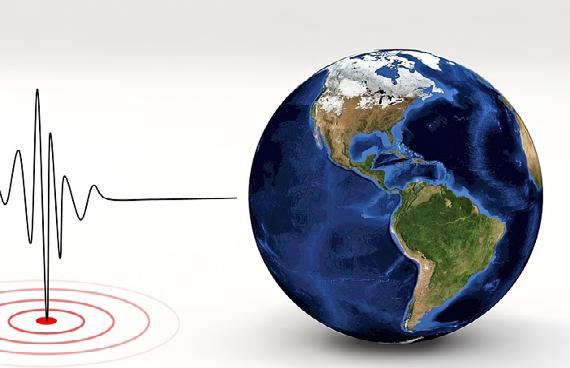
Israel polls: Netanyahu-led alliance wins majority, Lapid concedes defeat
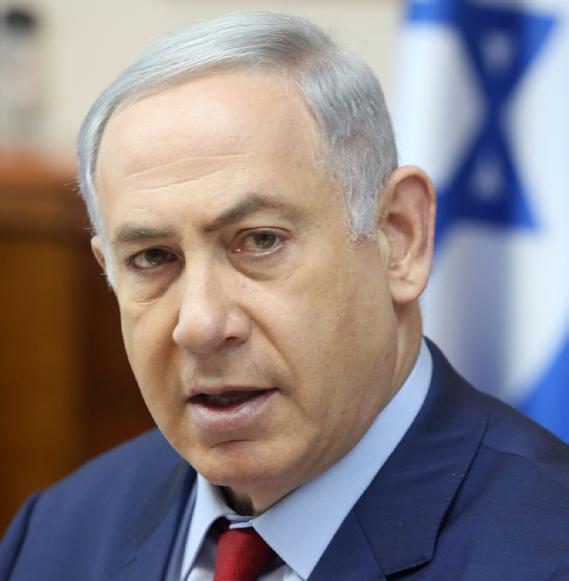

Jerusalem, Nov 4 (IANS) Former Israeli Prime Minister Benjamin Netanyahu made a comeback with a decisive victory in the country’s general elections, poll results showed on Thursday. As the final thousands of votes were being tallied Thursday evening, Prime Minister Yair Lapid called opposition leader Netanyahu to concede the race and congratulate him on his election victory, The Times of Israel reported. “The State of Israel is above any political considerations,” Lapid said in a statement. “I wish Netanyahu good luck for the people of Israel and the State of Israel.” Netanyahu will control not just the largest party in the Knesset (Israeli parliament), but is poised to return to power leading a 64-strong majority bloc of his religious and right-wing allies in the 120-member Knesset. Netanyahu’s right-wing Likud party won 32 seats and his right-wing religious and nationalist bloc won 64 in the 120-seat parliament, or Knesset, according to Israel’s Central
Elections Committee. Lapid’s Yesh Atid party won 24 seats and his bloc of right-wing, left-wing and Arab parties secured 51. Reacting to Netanyahu’s victory, Indian Prime Minister Narendra Modi, in a tweet, said: “Mazel Tov my friend @netanyahu for your electoral success. I look forward to continuing our joint efforts to deepen the India-Israel strategic partnership.” Prime Minister Modi also thanked Lapid for giving priority to the India-Israel strategic partnership. “Thank you @yairlapid for your priority to the India-Israel strategic partnership. I hope to continue our fruitful exchange of ideas for the mutual benefit of our peoples,” he tweeted. Lebanese PM calls for joint Arab efforts to save crisis-hit Lebanon
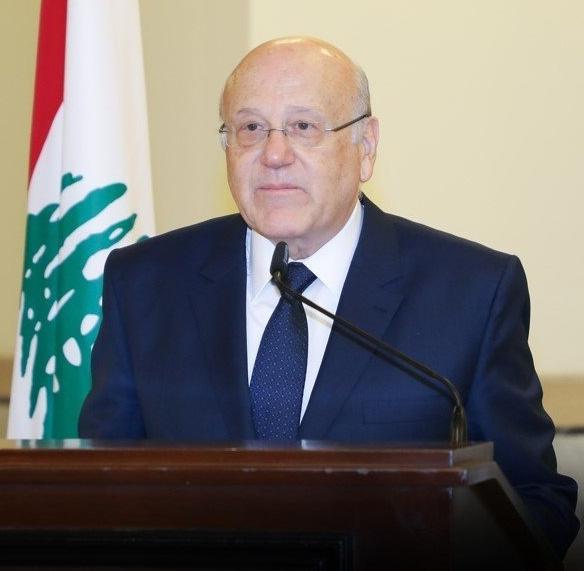
Beirut, Nov 3 (IANS) Lebanese Prime Minister Najib Mikati has called on Arab countries to “join together to save Lebanon,” which is going through an “exceptionally difficult situation”. “Lebanon is still counting on the help of all Arab brothers. Therefore, let the Arab hands join together to save my country, Lebanon,” Mikati said on Wednesday during the Arab League Summit in Algiers, according to a statement by Lebanon’s Council of Ministers. Lebanon suffers economically, socially, and environmentally and fights epidemics with the least resources, he warned as quoted by Xinhua news agency reported. “Our infrastructure has become weak, our resources are scarce, and we suffer from unprecedented inflation. Yet, despite all of this, we received this big Arab population, but we have turned into a weak body that needs strengthening instead of being ignored,” the Lebanese Prime Minister said, referring to the growing population of foreign Arabs, including refugees in the country. Mikati also affirmed “Lebanon’s commitment to all the decisions of the Arab League and its support for this institution to play its role in these historical circumstances”.
Only political solution can bring peace to Syria: UN envoy
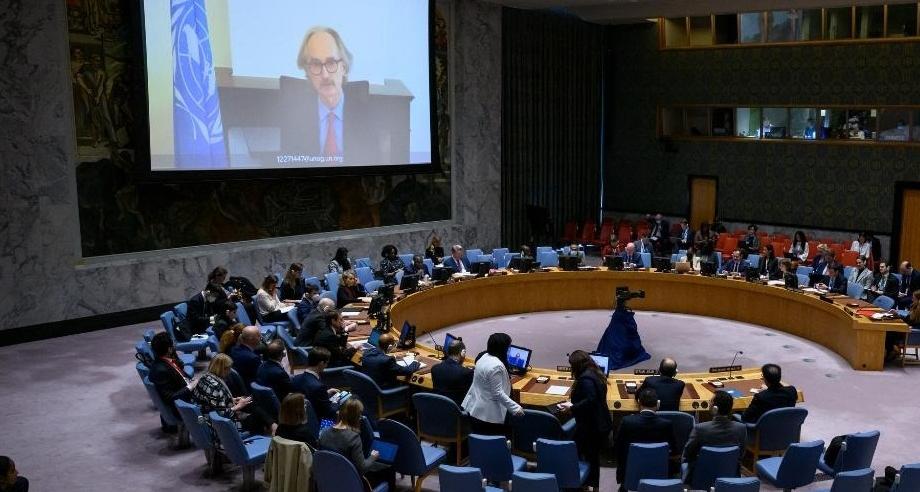
United Nations, Oct 26 (IANS) Geir Pedersen, the UN’s special envoy for Syria, said that only a political solution could bring peace to the country. “This political solution is the only path to sustainable peace,” Pedersen told the UN Security Council on Tuesday, speaking from the Swiss city of Geneva via video link. The envoy appealed for the council to support his efforts to move the parties closer to a negotiated political solution to end the 11-year conflict in Syria, reports Xinhua news agency. Pedersen reported on his recent “busy period of diplomatic engagement” with key Syrian and international stakeholders, including in connection with the stalled Constitutional Committee meetings in Geneva. “Sadly, we are a long way from this goal at present, and there are challenging diplomatic and ground realities that make advancing towards a comprehensive solution difficult. But the status quo should not be acceptable and there are ways forward,” he said. So far, the political process has not delivered for the Syrian people, and conflict remains “very active” across the country, said Pedersen. Listing examples, he said the terrorist group ISIL remains a serious threat. One of the largest weapons caches since its fall was recently discovered in the northeast, underscoring the insurgents’ continued capacity to carry out attacks. There were also reports of pro-government airstrikes in northwest Syria, where none had been reported in a long time. Meanwhile, in the northeast, drone strikes, mutual shelling and confrontations have been reported between the Syrian Democratic Forces on the one hand, and T�rkiye and armed opposition groups on the other. The envoy said he is pushing for all stakeholders “to engage on step-for-step confidence building measures” towards advancing Resolution 2254, which was adopted by the Security Council in 2015 and outlines a roadmap for a peace process in Syria. “The key Syrian and international stakeholders need to rebuild their confidence that cooperation on Syria is possible, that the other side is willing and able to deliver, and that Syria can be firewalled from other conflicts. That confidence can only be built by concrete actions,” he stressed. So far, some countries have identified “concrete areas for potential steps”, but talks need to go further, he said. The envoy also continues his work to unblock obstacles surrounding the reconvening of the Syrian Constitutional Committee, which comprises representatives from the government, the opposition and civil society. The Security Council also heard how communities in Syria are struggling to survive amidst a spiraling security, public health and economic crisis. Reena Ghelani, a director in the UN’s humanitarian affairs office, OCHA, provided an update on the cholera outbreak in Syria. More than 20,000 suspected cases of the waterborne disease have been confirmed so far, and at least 80 people have died. “This is a tragedy, but it should not come as a surprise”, she said. The outbreak is further compounded by factors such as poor rainfall in many locations, severe drought-like conditions, and damaged water infrastructure. The UN and partners have been sounding the alarm on the water crisis in northern Syria for at least the past year, said Ghelani, adding that the crisis is likely to get even worse with an increased probability for below-normal precipitation and above-normal temperatures. The UN has a three-month plan to respond to the outbreak, and calls for $34.4 million to assist 162,000 with health services, and 5 million with water, sanitation and hygiene assistance.
Palestinian killed in clashes with Israeli soldiers: Health Ministry
Ramallah, Nov 6 (IANS) A Palestinian was killed and another seriously injured in clashes with Israeli soldiers northeast of the central West Bank city of Ramallah, the Palestinian health ministry and eyewitnesses said. The ministry said in a press release that Mos’ab Nafal, 18, from the village of Sinjil, northeast of Ramallah, was killed on Saturday after he was shot in the chest by Israeli soldiers, Xinhua news agency reported. Eyewitnesses in Ramallah said Israeli soldiers opened fire at the two men while they were throwing stones at Israeli military vehicles near the village. One of them succumbed to his wound after being taken to hospital and the other was arrested by the soldiers, they added, noting the Palestinian medical teams were unable to reach the two men. Meanwhile, Israeli media reported that Israeli soldiers shot two Palestinians throwing stones at Israeli settlers’ vehicles on the main road near the village of
Sinjil, adding one was killed and the other injured and arrested. On Thursday, four Palestinians were killed by Israeli soldiers in East Jerusalem and the West Bank, including Farouq Salameh, an Islamic Jihad militant Israel accuses of being behind the killing of an army officer several months ago. The incidents come amid heightened tension between Palestinians and Israelis, especially when the final count of votes in Israeli elections this week has shown former Prime Minister Benjamin Netanyahu and his far-right bloc will return to power. Israel, Bahrain discuss strengthening economic ties
Jerusalem, Nov 1 (IANS) Israeli Finance Minister Avigdor Lieberman and Bahrain’s Commerce and Industry Minister Zayed R. Alzayani have discussed ways to strengthen economic ties between the two countries. In a meeting in Jerusalem with the Bahraini Minister, Lieberman highlighted the economic potential in the region and talked about the possibility of building a terrestrial connection from Israel to the Gulf, the Israeli Finance Ministry said in a statement on Monday. For his part, Alzayani stressed the importance of the economic ties between the two countries, urging the two sides to increase bilateral investments and trade, Xinhua news agency reported.
Leading a large Bahraini delegation, Alzayani is currently in Israel on a five-day business mission, during which he also held meetings with Israeli President Isaac Herzog and Economy Minister Orna Barbivay. Israel approves deal setting maritime boundary with Lebanon
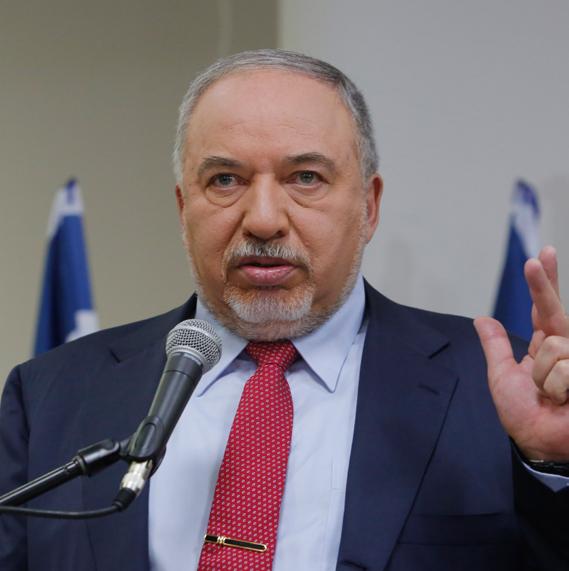
Tel Aviv, Oct 27 (IANS) The Israeli government on Thursday approved a maritime demarcation deal with Lebanon, setting for the first time a border between the two countries, which have been in an official state of war since 1948. The “historic” agreement would strengthen Israel’s security and economy, Prime Minister Yair Lapid told a government meeting, adding that 17 per cent of the profits from Lebanon’s Qana natural gas field in the disputed area would be shared with the Jewish state, reports Xinhua news agency. Earlier in the day, Lebanese President Michel Aoun signed a letter approving the deal. The deal, first announced on October 11, lays out a demarcation line between the two countries in the disputed zone in the eastern Mediterranean, where several natural gas fields are located.
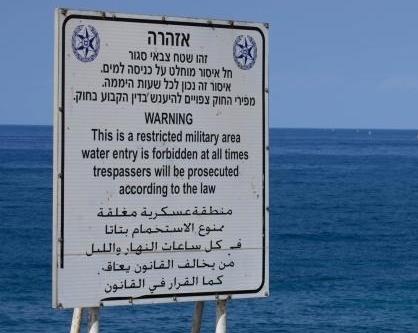
Baghdad, Nov 2 (IANS) Iraq exported 104.83 million barrels of crude oil in October, generating $9.25 billion in revenue, the country’s Oil Ministry has announced. The average price for Iraqi crude oil in October was 88.31 dollars per barrel, the Ministry said in a statement on Tuesday, citing statistics from the State Organisation for Marketing of Oil. A total of 102.7 million barrels were exported from oil fields in central and southern Iraq through the Port of Basra, while more than 2 million barrels were exported from the northern province of Kirkuk through the Turkish port of Ceyhan on the Mediterranean, the statement added. Oil prices have risen in global markets since the outbreak of the Russia-Ukraine crisis in February, benefiting Iraq and other oil exporting countries, Xinhua news agency reported.
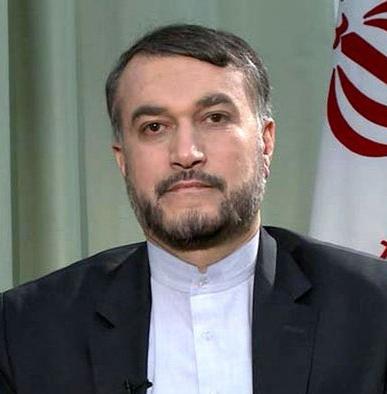
Tehran, Nov 6 (IANS) Iranian Foreign Minister Hossein AmirAbdollahian on Saturday called on the US to prove its “real will” in the negotiations aimed at the revival of 2015 Iranian nuclear deal, according to the Foreign Ministry’s website. The US should prove that it would not “violate” its obligations by imposing sanctions, Amir-Abdollahian said at the first meeting of the national coordinators of the Group of Friends in Defense of the Charter of the United Nations, which kicked off in the Iranian capital Tehran on Saturday, Xinhua news agency reported. He pointed to Washington’s unilateral withdrawal from the nuclear pact, formally known as the Joint Comprehensive Plan of Action (JCPOA), in 2018, saying that it showed Washington’s “disregard for its international obligations and its clear violation of the resolution approved by the United Nations Security Council”. It is unfortunate that the incumbent US administration, despite its promises and claims, still maintains the course of “hostile actions ... and continuation of the failed policy of maximum pressure” against Tehran, he said, adding that instead of making up for the mistakes of the previous government, the administration of US President Joe Biden “adopts hypocritical positions”. The Iranian foreign minister stressed that his country adheres to the continuation of nuclear negotiations for the revival of the nuclear agreement, while emphasizing its inalienable right to use peaceful nuclear energy in all its dimensions, including uranium enrichment for peaceful purposes. Meanwhile, “America must prove that it has good intentions and real will and does not intend to use the negotiations to waste time and find another excuse to continue violating its obligations and continue the sanctions that this country is unfortunately very addicted to,” he noted. Amir-Abdollahian said on Thursday that his country had “absolute readiness” to conclude nuclear talks “as soon as possible.” On Wednesday, the top Iranian diplomat said an Iranian delegation would travel to Vienna, Austria in the coming days for talks on enhancing cooperation with the International Atomic Energy Agency. Iran signed the JCPOA with major countries in July 2015, agreeing to curb its nuclear program in return for removing sanctions on the country. However, former US President Donald Trump pulled Washington out of the agreement and reimposed sanctions on Tehran. The talks on the JCPOA’s revival began in April 2021 in Vienna. No breakthrough was achieved after the latest round of talks held in early August.
Tunisian Minister urges implementation of reform plan to obtain IMF loan
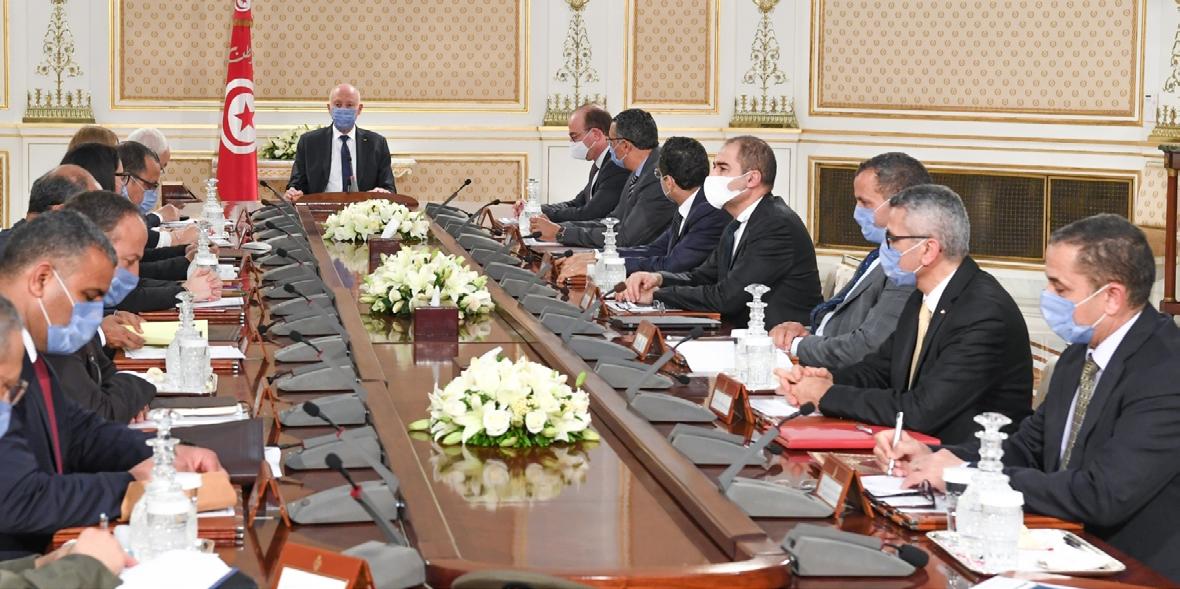
Tunis, Nov 2 (IANS) Tunisian Minister of Economy and Planning Samir Saied has said that Tunisia has no choice but to implement the reform plan presented to the IMF. “We have presented a detailed reform plan to the IMF after losing credibility over the past few years,” state media outlet quoted Saied as saying on Tuesday during a conference organised by the Confederation of Tunisian Citizen Enterprises in the nation’s capital of Tunis. “Otherwise, our children’s future could be at stake,” the Minister said, adding that the release of an IMF loan depends on the progress of the reform, Xinhua news agency reported. The release of the loan in tranches will ensure the implementation of the country’s reform, he added. On October 16, Tunisia and the IMF reached a staff-level agreement to support the country’s economic policies with a 48-month arrangement under the Extended Fund Facility of nearly $1.9 billion, Tunisian media reported on Saturday. The final agreement on the arrangement is subject to the approval of the IMF’s Executive Board, which is scheduled to discuss Tunisia’s request in December, an IMF statement was quoted as saying. The loan is expected to support the Tunisian government’ economic reform by restoring the country’s external and fiscal stability, enhancing social protection, promoting higher, greener and inclusive growth, as well as creating private sector-led jobs. Rabat, Oct 5 (IANS) Morocco and Saudi Arabia have pledged to boost trade and economic cooperation at a bilateral economic forum held in Casablanca, the commercial hub city of Morocco. Morocco aims to increase its trade with Saudi Arabia to $5 billion in the next five years from the current amount of $1.7 billion, said Moroccan Minister of Industry and Trade Ryad Mezzour on Tuesday at MoroccoSaudi Arabia Economic Forum,
also attended by Saudi Minister of Commerce Majid bin Abdullah Al-Qasabi. There are various investment opportunities in both countries, Mezzour added, urging businessmen to give new impetus to bilateral trade through various projects, Xinhua news agency reported. Al-Qasabi, for his part, said the current trade volumes are not up to the ambitions of the two countries. Saudi crown prince’s Pakistan visit on track despite political upheaval
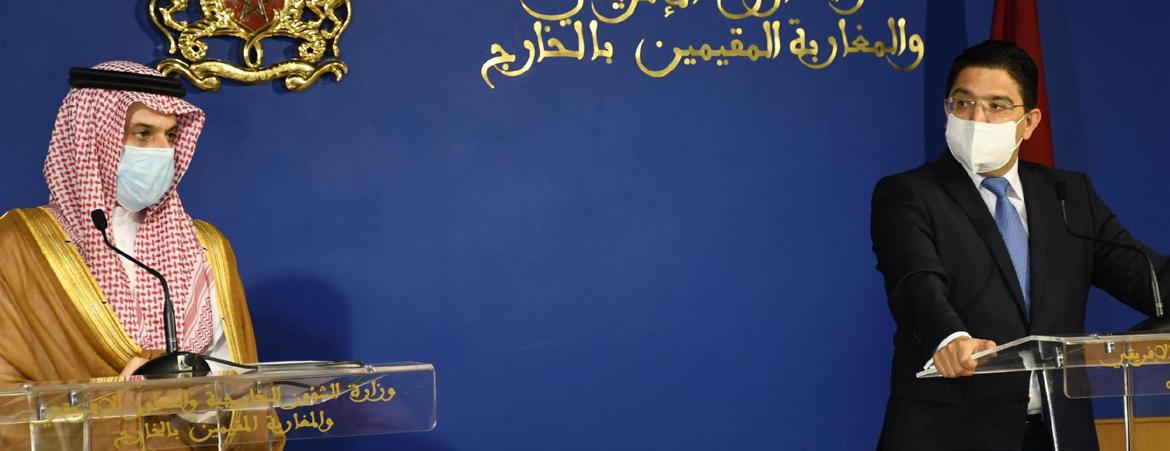
Islamabad, Nov 6 (IANS) Despite political uncertainty, the visit of Saudi Crown Prince Mohammed bin Salman is on track as the Saudi de facto ruler is likely to travel to Islamabad in the third week of this month, local media reported. Official sources said both sides were busy in preparing for the visit of MBS, who is now also the Saudi prime minister. Although the Foreign Office is tightlipped, the tentative date of the visit is November 21, The Express Tribune reported. Earlier the visit was in doubt because of the long march of former prime minister Imran Khan. The PTI chairman has now called off the long march and would resume his protest once he fully recovers from his injuries. Officials are hoping that the situation would remain under control and there would be no upheaval at the time of the visit, The Express Tribune reported. The Shehbaz Sharif government, which is facing multiple economic challenges, is keen to ensure the visit takes place as the Saudi crown prince is expected to announce another financial bailout package for Pakistan. Riyadh has already rolled over $3 billion dollar loan that Pakistan had to pay later this year. Finance Minister Ishaq Dar during his recent visit to Saudi Arabia sought additional $4.2 billion financial bailout package. He told reporters on Friday that Saudi Arabia had given a positive response to his request. China during the visit of Prime Minister Shebhaz Sharif also agreed to roll over $7.3 billion loan with a commitment to provide additional $1.5 billion assistance, The Express Tribune reported.
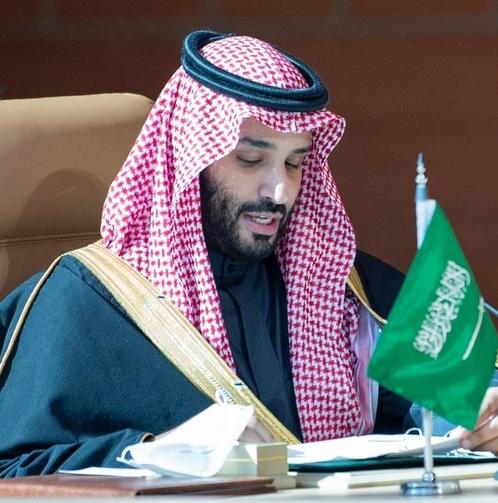

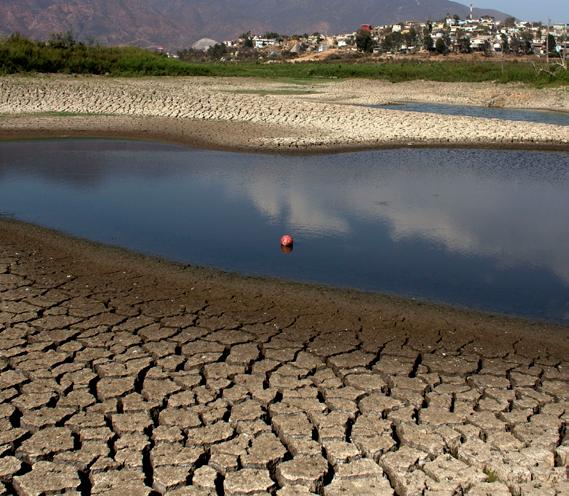
San Francisco, Nov 2 (IANS) Impacts from climate change are rapidly accelerating in California, according to a new report. The nearly 700-page report, developed by over 100 scientific experts and 40 Tribes, focuses on more than 40 key climate indicators and tracks the state’s actions in response, painting a stark picture of the escalating climate crisis in the most populous state in the US and documenting the wide-ranging effects of global reliance on fossil fuels on the state’s weather, water and residents, reports Xinhua news agency. The report was released on Tuesday by The Office of Environmental Health Hazard Assessment, a specialised department within the state cabinet-level California Environmental Protection Agency in charge of evaluating health risks from environmental chemical contaminants and providing scientific advice to the state’s policymakers. The report listed many detailed escalations of climate change. For example, half of the state’s largest wildfires over the past 70 years occurred in just two years. The last two decades have been the driest in the past millennium, with California glaciers rapidly disappearing and temperatures up 2.5 degrees since 1895. “Across the state, we live the
experience of extreme weather, deepening drought, and deadly wildfires and heatwaves,” said the environmental protection agency’s Secretary Yana Garcia in a statement. “This report shows scientifically what we know from experience. Since the last update in 2018, weather extremes have intensified and become more erratic. Some changes in the past four years are irreversible, such as the near disappearance of glaciers from the Trinity Alps,” said the statement. Meanwhile, the report also hailed California’s efforts to take actions that could serve as a model for other states. It urged the state government to do more, including measures to protect coastal waters, investment in renewable energy resources and phasing out gas-powered vehicles. Climate negotiator seeks evidence-based talks on Africa at COP27
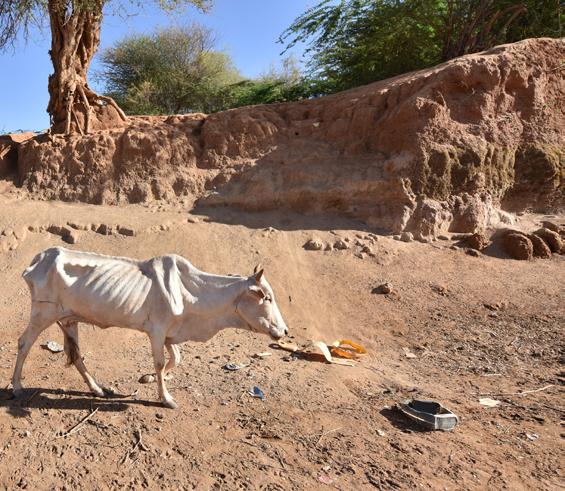
Nairobi, Nov 3 (IANS) The rise in multiple extreme weather events in Africa calls for a coordinated approach for evidence-based negotiations at the COP27 in Egypt, a climate negotiator said. George Wamukoya, the team leader of the African Group of Negotiators Expert Support (AGNES), said on Wednesday in a statement released in Nairobi, Kenya’s capital, there has been a lack of coordination between African policymakers, scientists and negotiators to provide evidence on the effects of global warming on the continent. “In all the positions that Africa takes, negotiators must do technical or background papers to generate evidence guiding that position,” Wamukoya, an experienced lead coordinator on agriculture said. “Ahead of the climate change conference, we have convened pre-meetings where scientists and negotiators have discussed the agenda and identified areas that require evidence. These scientists have helped negotiators in packaging a common African position that is informed by science,” he added. On Tuesday, Guleid Artan, the Director of the IGAD’s Climate Prediction and Applications Center (ICPAC), said Africa would at the meeting focus on getting adaptation funds from countries that have created the mess for the continent. Africa is among the continents that have suffered the worst effects of the climate crisis, with countries like Nigeria and South Africa enduring floods as drought ravages the Horn of Africa, Xinhua news agency reported. The adverse impacts of the climate crisis have led to increased food insecurity, water scarcity, reduced crop yields and disruption of food systems have taken a toll on African households and the continent’s economic growth. “Science tells us that Africa is
the most vulnerable continent yet it has contributed the least in terms of emissions. Africa’s voice in the global climate negotiations, therefore, becomes critical,” Wamukoya added. According to the United Nations Environment Programme (UNEP), the cost of adapting to climate change shocks across Africa is estimated to rise to $50 billion by 2050 if the global temperature increase remains within 2 degrees celsius above pre-industrial levels. This is despite the continent accounting for less than four per cent of global emissions. “Delivering a good outcome at COP27 for Africa is, therefore, an imperative. AGNES is ready to make a case for adaptation, doubling adaptation finance, creating greater prominence for loss and damage discussions, raising mitigation ambition, and institutionalising agriculture in the UNFCCC process. We must deliver on agriculture,” said Wamukoya. The Conference of the Parties 27 of the United Nations Framework Convention on Climate Change will kick off in Egypt on November 6. Almost every child on earth will suffer from heatwaves by 2050: Unicef

Geneva, Oct 26 (IANS) Hot weather has become a health risk for many nations, but new data shows that almost every child on earth will be affected by heatwaves by 2050, the Unicef warned in a new report. In the report released on Tuesday, the UN agency said that already around 559 million children are exposed to high heatwave frequency and around 624 million children are exposed to one of three other high heat measures -- high heatwave duration, high heatwave severity or extreme high temperatures. “By 2050, virtually every child on earth, over 2 billion children, is forecast to face more frequent heatwaves, regardless of whether the world achieves a ‘low greenhouse gas emission scenario’ with an estimated 1.7 degrees of warming in 2050 or a ‘very high greenhouse gas emission scenario’ with an estimated 2.4 degrees of warming in 2050,” it said. According to Unicef, children in northern regions will face the most dramatic increases in high heatwave severity while by 2050, nearly half of all children in Africa and Asia will face sustained exposure to extreme high temperatures. “The mercury is rising and so are the impacts on children,” Unicef Executive Director Catherine Russell said in the report, adding that year’s wildfires and heatwaves that have swept through India, Europe, and North America were “yet another sobering example of the impact of climate change on children”. “Already, 1 in 3 children live in countries that face extreme high temperatures and almost 1 in 4 children are exposed to high heatwave frequency, and it is only going to get worse. More children will be impacted by longer, hotter and more frequent heatwaves over the next 30 years, threatening their health and wellbeing. How devastating these changes will be depends on the actions we take now. “At a minimum, governments must urgently limit global heating to 1.5 degrees Celsius and double adaptation funding by 2025. This is the only way to save children’s lives and futures and the future of the planet,” she added. The data published in the agency’s report underscores that young children face greater risks than adults when faced with extreme heat events. This is because they are less able to regulate their body temperature compared to adults. The more heatwaves children are exposed to, the greater the chance of health problems including chronic respiratory conditions, asthma, and cardiovascular diseases. “The world urgently needs to invest in building their resilience -- and in adapting all the systems children rely on to meet the challenges of a rapidly changing climate,” Unicef maintained. Children should be protected from the escalating impacts of heatwaves, Unicef said, in a call for “urgent and dramatic emissions mitigation measures to contain global heating -- and protect lives”.
UN chief wants climate adaptation to be treated with seriousness
United Nations, Nov 4 (IANS) UN Secretary-General Antonio Guterres has said that climate adaptation must be treated with a seriousness that reflects the equal worth of all members of the human family. In a message on the launch of the Adaptation Gap report by the UN Environment Programme (UNEP), Guterres said the lack of support for adaptation needs in the developing world is unacceptable, Xinhua news agency reported. The UNEP Adaptation Gap report makes clear that the world is failing to protect people from the here-and-now impacts of the climate crisis. Those on the front lines of the climate crisis are at the back of the line for support, said Guterres. The world is falling far short both in stopping the growth of greenhouse gas emissions and starting desperately needed efforts to plan, finance and implement adaptation in light of growing risks, he said. Adaptation needs in the developing world are set to skyrocket to as much as $340 billion a year by 2030. Yet adaptation support today stands at less than
one-tenth of that amount, he noted. The most vulnerable people and communities are paying the price. This is unacceptable, he said. “Adaptation must be treated with a seriousness that reflects the equal worth of all members of the human family,” said Guterres. “It’s time for a global climate adaptation overhaul that puts aside excuses and picks up the toolbox to fix the problems.” He called for a dramatic increase in the quantity and quality of financing for adaptation needs, adaptation priorities into investable projects, far better climate risk data and information, and universal early-warning coverage for climate disasters within five years. Record number of Australians ‘very concerned’ about climate change: Report
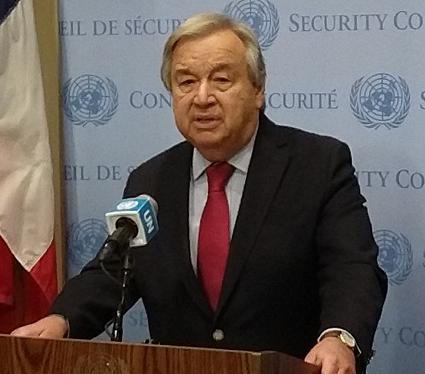
Canberra, Nov 3 (IANS) A record numbers of Australians are “very concerned” about climate change as the eastern part of the country is affected by the flood, according to a new report published on Thursday. Think tank the Australia Institute published its 15th annual Climate of the Nation report, which charts citizens’ attitudes towards climate change and its solutions, reports Xinhua news agency. The report found that 83 per cent of Australians are concerned that climate change will affect the food supply as a result of droughts and floods. The same portion of participants in surveys for the report said they were concerned climate change would cause more bushfires. Asked about measures that could be taken to reduce Australia’s carbon emissions, 68 per cent supported the introduction of national fuel efficiency standards and 64 per cent support requiring all new car sales in the country to be zero-emissions vehicles by 2035. “As flood waters continue to rise at record levels, so too does the number of Australians worried about climate change impacts, with concern over floods at record highs,” Richie Merzian, Director of Climate and Energy for the institute, said in a statement. “Australians are dealing with the high-cost consequences of
relying on gas and coal power and three-quarters want the government to step in and plan the shift to renewables and storage. “The Australian government has a clear mandate to do more when it comes to climate, in particular, clean transport. The upcoming electric vehicle strategy is an opportunity to get moving on fuel efficiency standards, targeted electric vehicles subsidies, and a phase-out of fossil-fuelled vehicles - all of which have strong public support,” Merzian added. In July, the Australian Capital Territory announced a plan to ban the sale of all new vehicles powered by an internal combustion engine from 2035. According to the Australia Institute, nationally 75 per cent of the respondents support electrifying state bus fleets by 2030 and 62 per cent believe that governments should introduce policies to encourage mode change from cars to active and public transport. Another 62 per cen France experiences hottest October since 1945
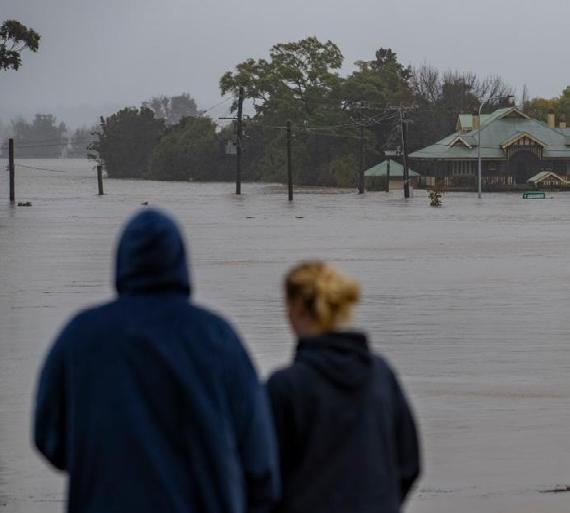
Paris, Nov 3 (IANS) October 2022 was the hottest October in France since 1945, with an average temperature of 17.2 degrees Celsius, the national meteorological service MeteoFrance said. The average temperature this October was about 3.5 degrees Celsius higher than normal across the country, Xinhua news agency quoted Meteo-France as saying. According to the meteorological service, the second half of October 2022 was marked by an exceptionally long and intensified heat. It added that the average temperature recorded in 30 weather stations across the country has remained above normal since October 2. This unprecedented heat was accompanied by violent thunderstorms over a large part of the country on October 23, causing significant damage, especially in the northern region, MeteoFrance added.
Xi Jinping has his way
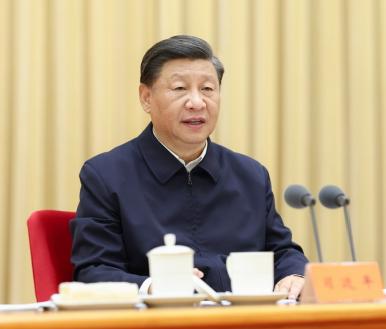
By D C Pathak
The outcome of the 20th National Congress of the Chinese Communist Party (CCP ) that began on October 16 at the Great Hall of the People in Beijing has already been signalled by the report drawn up by the 19th Central Committee in which it was claimed that China had under the leadership of Xi Jinping as CCP General Secretary, marched ahead on multiple fronts - from economic policy to international relations - in pursuit of ‘the great rejuvenation of the Chinese nation’ and has done so amid increasing pressures on China posed by complex geopolitical developments. Presenting this report himself, Xi Jinping claimed that during the ‘extremely unusual and extraordinary’ spell of last five years that witnessed ‘big changes not seen for a century’, the party achieved ‘historic victories’ such as reaching the CCP’s centennial goal of establishing a ‘moderately prosperous society’ and eliminating ‘extreme poverty’. He declared that a new ‘central task’ was to achieve the ‘second centenary goal of building China into a great modern Socialist country in all respects’ through a ‘Chinese path to modernisation’ and indicated that he sought to realize that aim by 2035 itself - much before the goal of getting there by the 100th anniversary of the founding of the People’s Republic of China in 2049 was first set. The way Xi asserted that China’s zero-COVID policy was good for the economy and did not make any reference to the hardships faced by the people, raised the call of ‘shared prosperity’ through increased employment-based income, self-dependence in high tech field and startups and reiterated China’s willingness to use force to incorporate Taiwan into the People’s Republic, his message was one of assuring the people that China is moving forward on a steady note despite all odds and warning the nation at the same time, of the darker times ahead. The report acknowledged the Belt & Road Initiative (BRI) as an instrument for advancing China’s opening towards the outside world but emphasised that security was now on top of the agenda . Xi pointed out that ‘China is now in a period where strategic opportunity and risks and challenges co- exist’. The work report presented by Xi Jinping showed his confidence about continuing with a third term- and beyond - as it made repeated references to the ‘centralisation’ and ‘unity’ of the party’s top leadership as a process that will continue into the future, resolved to keep up the fight to counter corruption and ideologically indoctrinate China’s people and declared that China must be ready to withstand ‘high winds, choppy waters and even dangerous storms’. Xi Jinping has been successful in stamping out dissent, consolidating his control on the party and projecting himself as the saviour of the nation against new global threats. He combines the traits of Mao Zedong and Deng Xiaoping and remembers the lessons that China had to draw from the demise of USSR. The Soviets had deviated from Democratic Centrism or one party rule that was the essence of Marxism and had allowed a closed economy to deteriorate amid the corruption of an oligarchy. Xi Jinping kept up the Deng Xiaoping’s approach of opening the Chinese economy to the world in a controlled way, but reverted to making the party singularly strong as was done by Mao Zedong. Many Chinese people were convinced that just as Mao united their country and Deng helped it prosper, Xi’s foreign policy will make China great again by attending to both national security and economic advancement. Xi told the 20th Party Congress that the Chinese people will never allow any foreign forces to bully, oppress or enslave them and announced that ‘the party leads in all spheres of the nation- government, army, society, academia, east, west, north, south and centre’. The 19th Central Committee report significantly contended that ‘leadership of CPP is the fundamental feature and the greatest advantage for Socialism’. The 19th national Congress had not only centred round the theme of the ‘Chinese dream’ but had seen Xi as a ‘leader’ who would bring the party to the centre of everything in China and head nearly every critical organisation. The notion of collective leadership on China was effectively ended and the idea of ‘core leader’ was brought back after some 30 years. The speech of Xi at the 20th national Congress of CPP was just half as long as the one delivered by him at the last one, indicating a mindset of confidence that the agenda will be carried through as fixed. It is therefore not a surprise that he is - apart from becoming the General Secretary of the party for an unprecedented third term - recognised now as the ‘core leader’ giving him parity with Mao Zedong. Xi is glorified as a restorer whose ‘thoughts on Socialism with Chinese characteristics for a New Era’ is today’s equivalent of Mao’s little Red Book. Xi’s new status and his thoughts were incorporated in the party’ Constitution. In 2018, at the instance of Xi, the party had lifted the embargo of two terms for the post of President and Xi is set to continue in that position too - his affirmation about achieving the next centennial goal of the party by 2035 showing his aspiration to be around in the supreme position for many more years. The Chinese President has corrected the earlier strategy of pursuing the economic route to becoming a superpower to place an equal emphasis on military advancement. He announced that he intended making PLA a fully modernised and restructured force by 2027. He repeatedly spoke of China’s defence of its territorial boundaries, made it a point to specially invite the PLA commander of Galwan to the national Congress and declared that he wanted a more muscular, aggressive and fighting China to deal with the situation ahead. As the signs appear of a new Cold War developing between the US and China on Taiwan and Indo- Pacific, Xi is bracing to deal with the opponents led by the US. He is confident that China leads the residual of the Communist world after the dismemberment of the USSR, is sure of the irreversibility of Sino-Russian bonds, particularly in the wake of the military confrontation between Russia and Ukraine, and is cognisant of the interplay of Indo-US and Indo-Russian relations. Xi has been trying to consolidate China’s strength externally and also from within. The BRI, strategic Sino-Pak alliance and an assertive foreign policy are supposed to bring China some advantage internationally while a definite focus on removing poverty, reducing inequalities and enhancing internal cohesion remain the hallmark of Xi Jinping’s domestic policies. Socialism with Chinese characteristics is translated into practice by Xi through his advocacy of Sinicisation of Marxism, his extraordinary invocation of the ‘civilisational strength’ of China and a ruthless attempt at assimilating the minorities in the Chinese nation. The BRI was a mean of furthering economic expansion and political dominance. Sino-Pak axis helped Xi guard the Chinese interest in Afghanistan through a give and take with Taliban on matters relating to Xinjiang and counter India through collaboration with Pakistan on the issue of Kashmir. Xi Jinping would not like India to be drawn too close to the US in the latter’s geopolitical moves against China and is therefore trying to suggest that IndiaChina issues on LAC should be seen in the wider context of Sino-Indian relations - the Indian response rightly making these relations incumbent on a resolution of the border problem. Xi wants China’s advance to be steady but not slow and realises that the old strategy of gaining victory without war may not work out. The classical doctrine of ‘two steps forward, one step backward’, however, is still on and a glimpse of that was seen on the LAC, making it necessary for India to demonstrate its zero tolerance of any aggressive Chinese behaviour. The NarendraModi regime is adopting this policy and is prepared to deal with any coordinated attempt by China and Pakistan to indulge in mischief on our borders or even on our domestic front. Xi Jinping has emerged as the Chinese leader in total control of the state, the party and the military - with politburo, central committee and central military commission, all packed with his loyalists - and it is evident that he is fully geared to taking on US President Joe Biden in the geopolitical confrontation that is developing between the US and China. (The writer is a former Director of Intelligence Bureau. The views expressed are personal) By AsadMirza
After decades of enmity, Israel and Lebanon recently signed a historic agreement agreeing to demarcate their maritime boundaries and also demarcating the disputed area in Qanaa prospect, which is believed to be rich in oil and gas reserves. Further, it has in a de-facto manner, forced Lebanon to accept Israel as a sovereign nation, which it has refused to do so till now, as it maintains no diplomatic relations with Israel. The disputed 860 sq.km area of the Mediterranean Sea potentially holds billions of dollars’ worth of oil and gas. Tensions between Israel and Lebanon worsened earlier this year when, in June, a London-based vessel arrived to develop a gas field for Israel. Though at present the deal seems to be a win for both sides, future security threats can’t be ruled out after this maritime agreement. Welcome by Lebanon Lebanese Deputy Speaker Elias Bou Saab has described the maritime border agreement as a “game changer” with hope that “People will start talking to Lebanon again,” adding that the deal will give Lebanon’s youth “hope”. For Lebanese government it may prove to be a shot in the arm to bolster its flailing economy and workout a package, which puts the nation back on the tracks for economic recovery and attracting potential investors. Under the US-brokered deal, Lebanon would be able to begin gas exploration in the Qanaa prospect, which lies within Lebanon’s exploration block but crosses over into Israeli waters. The Qanaa gas field is yet to be explored, but Lebanon believes it is rich with resources. It is currently estimated to be worth around $3 billion altogether. That could bring Lebanon between $100 and $200 million a year. However, the immediate economic benefits from Qanaa for Lebanon, seems to be too far-fetched, as its current infrastructure is in poor or at nascent stage and it’ll not be able to start extracting natural gas and oil immediately. At the earliest it may take another four to five years. If TotalEnergies does indeed begin exploration for the Lebanese, it could also offer incentives for other companies to get involved, with these prospects in mind, it is yet to be seen what the direct economic impacts will be. For Israel also, the potential earnings may start after four to five years, once it signs agreements with France’s TotalEnergies to explore the whole block. Israeli response As for the Israeli politicians, they have started hailing it as a decisive victory against Iran-backed and Lebanon-based Hezbollah. The right-wing elements in Israel, led by Benjamin Netanyahu have described the agreement as a failure of the centrist-Lapid government and describe this as conceding ground to Hezbollah, which may get further bolstered after this agreement. But the US negotiator Amos Hochstein dismissed Netanyahu’s criticisms as campaign rhetoric, saying the fact that two enemy countries managed to reach agreement on maritime border is ‘enormously significant’. Overall a regional security crisis seems to have been averted due to economic interests of both sides. Following the deal’s approval by the cabinet, the agreement was presented to the Knesset for a review over the next two weeks, but not asking for the parliament’s approval. Israel’s Attorney General GaliBaharavMiara, has opined that the current government is legally entitled to sign the maritime border agreement, and did not need to hold a referendum on the issue and suggested it would be preferable for the government to allow a Knesset vote on the issue, though it’s under no legal obligation to do so. Members of the Likud and other right-wing parties approached Knesset speaker Mickey Levy, demanding that the agreement be put to a parliamentary vote. Meanwhile discounting allegations of Lebanon gaining an upper hand in the agreement, Israel’s National Security Adviser EyalHulata said though Lebanon received almost all of the waters under dispute with Israel, it did not receive what it was really after. Behind the scene negotiators This brings out into the open the real negotiators behind the deal. The negotiations started months before at the US insistence and brokered by France. French diplomats helped US negotiator Amos Hochstein to stitch the deal together. Thus, the agreement also brings political benefits for the US President Joe Biden, who also faces mid-term elections for both the houses, next month. US mediation efforts were key to achieving the deal and it may bolster the Biden administration ahead of the mid-term elections next month. He might use this agreement to assuage the rising resentment amongst American public due to constantly increasing prices of oil and gas in America. Meanwhile, Europe’s gas crisis is increasing day by day. European governments are doing all they can to shield consumers from price shocks, but the crisis took a further dip after explosions damaged Nord Stream 1 and 2 last month. The Nord Stream 1 pipeline was Europe’s main source of Russian gas. Israel has said that, once the maritime deal is signed and delivered, it can begin extracting oil and gas from its Karish field and export it to Europe within weeks. This development comes in the background of worsening USSaudi relations, which hit a new low last week when the OPEC+, led by Saudi Arabia and Russia, defied the US with the largest output cut since the pandemic, bringing added pressure for Biden Administration. But, it is also a regional victory for the Biden administration, which lately has seen diplomatic tensions rise with some of its Middle Eastern allies. With the possibility of much needed gas from the Mediterranean and averting a potential security crisis between historic enemies, the US notched an important win in a region where its influence has seemingly diminished. (AsadMirza is a political commentator based in New Delhi. He writes on Indian Muslims, educational, international affairs, interfaith and current affairs)
Belgium and Netherlands to jointly host 2026 women’s and men’s hockey World Cups

Lausanne (Switzerland), Nov 3 (IANS) Meeting virtually on the eve of the start of the 48th FIH Congress, the Executive Board of the International Hockey Federation (FIH) on Thursday selected Belgium and the Netherlands to jointly host the 2026 FIH Hockey Women’s and Men’s World Cups simultaneously. The combined event will take place in July or August 2026 in Amsterdam/Amstelveen, Netherlands and Wavre, Belgium, with female and male teams playing in both venues, the FIH informed in a release on Thursday. The proposed format for the
match schedule -- with one local team, Belgium or the Netherlands, playing each day to make sure to fill the venues every day, seems to have influenced the EB’s decision. Commenting on the decision, FIH CEO Thierry Weil said: “On behalf of FIH, I would like to thank wholeheartedly all National Associations that submitted a bid. We received excellent proposals and it was, therefore, a particularly challenging task to decide. We’re very much looking forward to working with the National Associations of the current Women’s and Men’s World and Olympic Champions, the Netherlands and Belgium FIFA World Cup: Saudi Arabian football fan walks 1600 km to reach Qatar to inspire national team
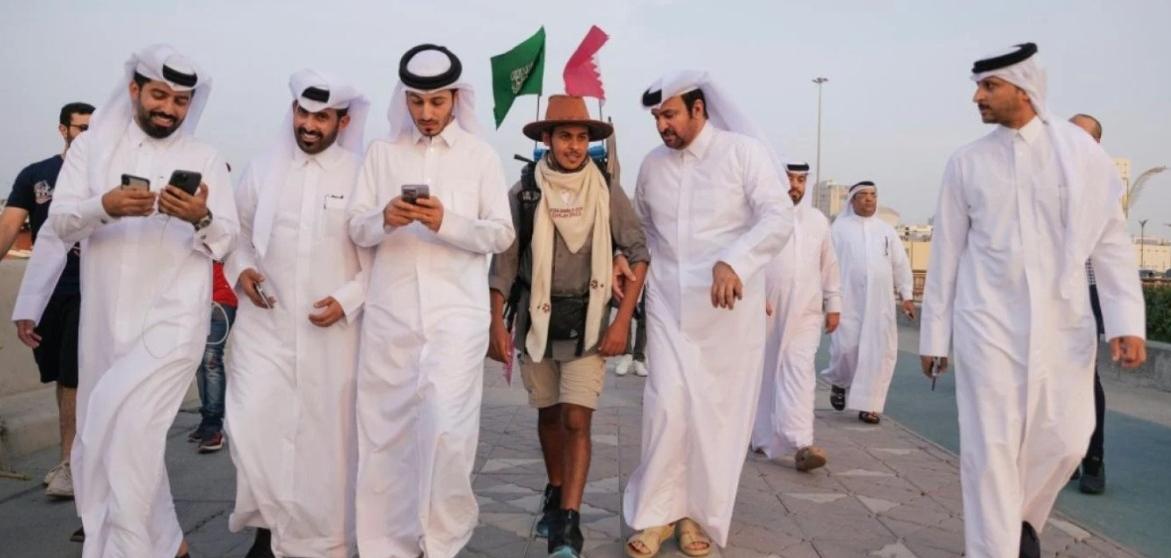
Doha (Qatar), Nov 5 (IANS) An extreme Saudi hiker walked across the desert in Saudi Arabia for 55 days to reach Qatar on Saturday to inspire his national team, which will play at the FIFA World Cup 2022 starting later this month. Avid football fan Abdullah Al Salmi combined his twin passions -- hiking and the Beautiful Game by planning his most ambitious trek yet -- a 1,600km walk across the Arabian Desert from his hometown of Jeddah in Saudi Arabia to Qatar’s capital Doha. After reaching the Doha Corniche, Al Salmi was greeted by throngs of supporters from across Qatar. Fans congratulated him on his feat while posing for photographs with him under the Saudi flag. “I have always wanted to attend a World Cup, and with the tournament coming to the Arab world for the first time, I wanted to mark the occasion by walking across the Arabian Peninsula in a show of brotherhood and unity between two neighbouring countries,” Al Salmi told the Qatar2022 website. Al Salmi, who first developed an interest for hiking while studying in Canada, set off from Jeddah on September 9 to walk across Saudi Arabia’s entire landmass. The Qatar-Saudi land border at Abu Samra is about 100 km from Doha and Qatari authorities have refurbished the immigration and customs facilities as thousands of Saudi fans are expected to drive in to watch matches. “I wanted to walk from the Red Sea, from the Jeddah Corniche to the Doha Corniche on the Arabian Gulf. Hiking gives me a sense of freedom and I wanted to share this passion and love with the millions of fans that are eagerly awaiting the first respectively, that will undoubtedly put together outstanding World Cups!” The EB also approved the budget for 2023. The expected FIH financial result is an operational profit of 1m CHF (including 150k profit from the FIH Hockey Pro League) thanks, to a large extent, to the upcoming FIH Hockey Men’s World Cup in India. The EB, chaired by President of the African Hockey Federation (AfHF) Seif Ahmed, also confirmed that the winners of the FIH Hockey Pro League in season 5 (2023/2024) and season 6 (2024/2025) will directly qualify for the 2026 FIH Men’s and Women’s World Cups. If the winner of season 6 is already qualified in season 5, the runner-up in season 6 will be offered the direct qualification place. The 48th FIH Congress will take place virtually on November 4 and 5.
World Cup in the region,” added Al Salmi, a passionate Green Falcons fan. “I hope that our national team hears of my walk and that it inspires them to do their best in the tournament. I want to show everyone that nothing is impossible and that with hard work and determination, you can do anything,” added Al Salmi. Saudi Arabia qualified for Qatar 2022, going unbeaten in eight of their nine qualification matches. The Saudis have been drawn into Group C alongside Argentina, Mexico and Poland. They will start their campaign at Lusail Stadium on November 22 against two-time champions Argentina. “The’amazing reception I’ve received has been tremendous. As soon as I crossed the Qatari border, people met me with flowers and food. This World Cup has also been about bringing people together and I hope my journey inspires others to walk towards each other -- to cross boundaries, to get to know each other, and break the stereotypes that so many of us in this region have to contend with,” added Al Salmi. Meanwhile, a Spanish football fan who was walking from Spain to Qatar recently disappeared in Iran, international media reports said.
Ecuador seeking best World Cup finish, says veteran forward Valencia

Quito, Nov 5 (IANS) Ecuador will be aiming for their best-ever World Cup campaign when football’s showpiece tournament kicks off in Qatar later this month, according to veteran forward Enner Valencia. Ecuador have featured in three previous World Cups, with their best performance coming at the 2006 edition in Germany when they reached the last 16. “We’re going to have a difficult group, but we know that if we stay confident, motivated and focused, we’re going to have our chances,” the 33-year-old Fenerbahce player told FIFA’s official website. Ecuador will begin their World Cup campaign in the competition opener against Qatar on November 20 and will also face the Netherlands and Senegal in Group A, reports Xinhua. “We know that we have to go step by step, we know that we have to think about our first match against Qatar,” Valencia said. “But we also know that we have a squad that will put up a fight.” One of Ecuador’s elder statesmen, Valencia will be playing in his second World Cup, having also been a part of the 2014 campaign in Brazil. Ecuador secured a place in the tournament by finishing fourth in the 10-team South American qualifying group. Valencia, who is Ecuador’s all-time leading scorer with 35 goals in 74 games, said the team was excited about playing the first match of the competition. “It’s incredible to think that the eyes of the whole world will be on us,” the former West Ham and Everton attacker said.
I am not happy with my performances at times this season, says Chelsea’s Sterling
London, Nov 6 (IANS) Attacking midfielder Raheem Sterling insisted he is staying patient in a new club Chelsea under a new head coach in Graham Potter this season, but the England international gave an honest assessment of his and the team’s performances ahead of facing early Premier League pace-setters Arsenal on Sunday. After joining Chelsea from Manchester City in the summer, Raheem Sterling’s equaliser in Chelsea’s last match 2-1 win over Dinamo Zagreb on Wednesday in the final Champions League group game, was his fifth goal of the season. However, the England international sets high standards for himself and admits he has not been happy with his own performances at times this season, even if he has no concerns over his ability to match those lofty expectations moving forward. “There’s been early parts of the season that I was not happy with my performances,” Sterling was quoted as saying by Chelsea’s official website. “So far I’ve been nowhere near the level that I need to be but I’m sure that will come as time passes. It’s not something that I’m panicking or stressed about. It’s part of the game. We’re in a decent position in the table, we’ve qualified for the Champions League, but there will be better performances from myself in the near future,” he said. The 27-year-old also discussed his role in the team, having alternated between the front
three and a wider role recently as Graham Potter searches for the right shape and system after joining Chelsea as head coach in September. “You come to a new team, there’s different things that are going to be asked of you and it’s a different shape. I haven’t played in a back five for a while, but it’s something the manager’s asked me to do and something that I’m more than happy to do as well. When we’ve got the ball I’m high and wide but of course you have to defend as well, that’s part of the game. The more time I have to figure it out in this position the better I will do,” he said. “I feel my best position is as a winger, but like anything the manager has his way of playing. He’s not had a full pre-season with us, he was dropped in in the middle of a storm really. He came in and I think he’s grabbed it with both hands and he’s trying to figure out the best personnel for positions and I’m sure with time it will come together nicely,” Sterling said. Vivian Richards appointed brand ambassador of Lanka Premier League

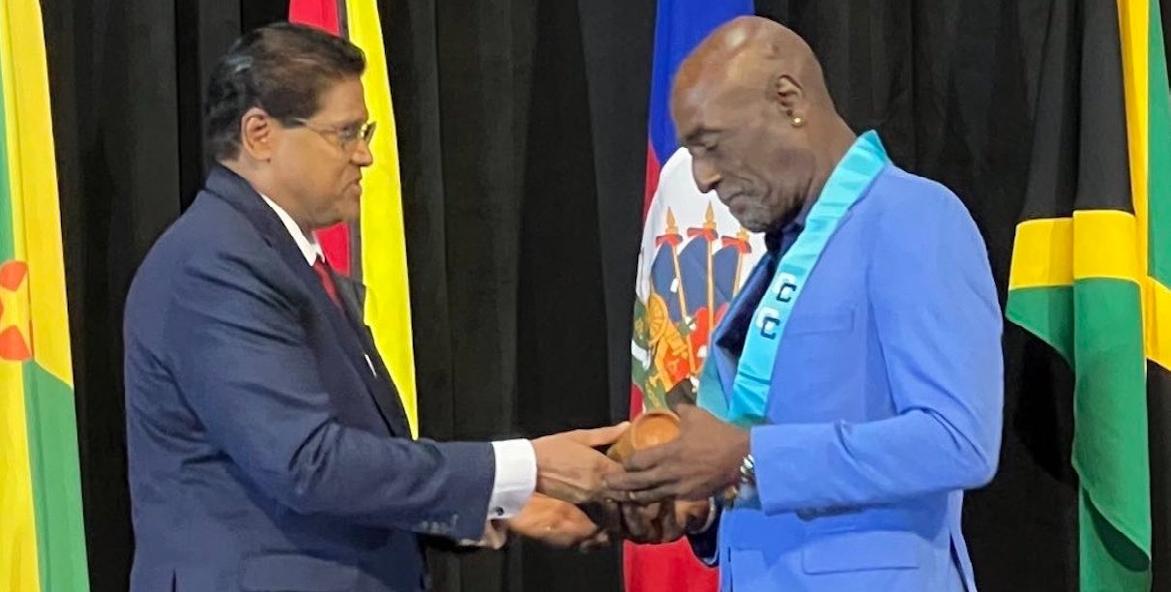
Colombo, Nov 4 (IANS) Legendary West Indies cricketer Vivian Richards has joined the Lanka Premier League (LPL) 2022 as its brand ambassador, giving a big boost to the third edition of the tournament to be played from December 6-23. Richards said he is excited to get to Sri Lanka, a country where he has always received “huge praise and love” from the cricket fans. “I am delighted to be the brand ambassador of the third edition of the LPL and want to say that this tournament is unearthing some great talents in Sri Lanka. We saw the power of Sri Lankan cricket in the Asia Cup this year and LPL certainly has a part to play in that success. I have seen the last two editions of this tournament and the quality of cricket was sublime and I am sure that players will maintain it in the upcoming edition as well,” said Richards. “I get great love from the Sri Lankan people and love this country. I am really excited to get to Sri Lanka for the upcoming season of the LPL, especially after the way this country and its people have overcome the tough times recently. The upcoming edition of the tournament will also put a smile back on the faces of the people of this great country. I am sure it will be a huge success.” Apart from giving a platform to young Sri Lankan players, the tournament has been a huge success in terms of viewership as well. “We are pleased to announce one of the finest batters of all time, Vivian Richards as brand ambassadors for the 2022 LPL. Having someone like Sir Richards will boost the league and attract more followers from the whole world, and help in our quest to make this tournament a global cricketing attraction. I am really excited to see great Sri Lankan talents on display in the league,” said Anil Mohan, chairman of IPG Group and founder of LPL. The LPL 2022 will see the participation of a number of star international cricketers, including Evin Lewis, Carlos Brathwaite, Janneman Malan, Dwaine Pretorius, D’Arcy Short, and Shoaib Malik, among others. The opening match will be played between Jaffna Kings and Galle Gladiators in Hambantota.
Socceroos face uphill task in Qatar World Cup

Canberra, Nov 5 (IANS) After a long and dramatic qualifying campaign, Australia are heading to the FIFA World Cup hoping to cause a shock. The Socceroos were among the last of 32 teams to qualify for the FIFA World Cup Qatar, beating Peru on penalties in the inter-confederation play-off -- about 1008 days after opening the qualification campaign with a 3-0 win over Kuwait in September 2019. It was a campaign that was heavily interrupted by the Covid-19 pandemic, with the Socceroos playing only four of 20 games at home, and typified by a struggle to score goals against top opposition, reports Xinhua. Through the early rounds of qualification, the Socceroos won 11 straight games -- the longest winning streak in team history in a single qualifying campaign. In the next seven games, Australia scored not enough goals, winning once and squandering an opportunity to qualify for the World Cup directly. In four matches against automatic qualifiers Saudi Arabia and Japan, the Socceroos lost three times and drew once, scoring only one goal. The Scottish-based Boyle is Australia’s most direct attacking player and will likely partner veteran Mathew Leckie on the wings of coach Graham Arnold’s preferred 4-2-3-1 formation. Duke heads to Qatar as one of the first-choice strikers but could face competition from Maclaren, who has scored five goals in four games for Melbourne City this season. Creativity in midfield is Arnold’s biggest problem ahead of announcing his squad for the World Cup. First-choice attacking midfielder Ajdin Hrustic is in a race against time to prove his fitness after injuring his ankle playing for Italian club Hellas Verona in late October. The international career of Tom Rogic, Australia’s most talented playmaker, is in doubt after he withdrew from the squad for the intercontinental play-offs. If neither are available, Arnold could turn to two teenage sensations in Garang Kuol and Cristian Volpato. Kuol, 18, will in January join Premier League giants Newcastle United after bursting onto the scene with the A-League’s Central Coast Mariners.
The inability to score against elite opponents is a problem that has plagued the Socceroos for a generation. At 2010, 2014 and 2018 World Cups, Australia were knocked out in the group stage each time. In Qatar, the Socceroos will be relying on Martin Boyle, Mitchell Duke, Awer Mabil and Jamie Maclaren to bring the goals. He made his Socceroos debut in a September friendly against New Zealand and is considered Australia’s most promising talent since the golden generation of Tim Cahill and Harry Kewell. The case for Cristian Volpato to fill the void in midfield is more complicated. Volpato played his junior international football for Italy
but is also eligible to represent Australia. The 18-year-old has not declared for either nation but bolted into Socceroos World Cup contention when he came off the bench to score and provide an assist in Italian giant Roma’s 3-1 win against Verona. Behind the attackers is where the Socceroos are mostly settled, with Aaron Mooy set to partner Jackson Irvine at the base of midfield. They will be flanked by Aziz Behich and Nathaniel Atkinson at left and right back, respectively. Despite his penalty shootout heroics against Peru in June, goalkeeper Andrew Redmayne could be benched for captain Mat Ryan. In the middle of the defence, however, there are significant selection problems. Both Harry Souttar and Trent Sainsbury -- Arnold’s firstchoice defensive pairing -- are under injury clouds. If either is deemed unfit to play at the World Cup, 30-year-old Bailey Wright and youngster Kye Rowles are the most likely replacements. Qualifying for a fifth consecutive World Cup after a tumultuous campaign was considered by many in Australia to be a pass mark for the Socceroos. For Arnold, though, the tournament in Qatar presents an opportunity to cement his legacy as one of Australia’s most successful coaches. Having won the A-League championship multiple times, the 59-year-old Arnold has managed the Socceroos since 2018 having previously served as an assistant and caretaker. Drawn in Group D against France, Denmark and Tunisia, the Socceroos will face a tough challenge to equal the nation’s best World Cup result of qualifying for the round of 16, which they achieved in 2006. If they do progress, Arnold will reportedly trigger an automatic four-year contract extension. However, a more realistic target for the Socceroos could be to secure a first win at a World Cup since 2010. IOC president Bach visits Senegal for Dakar 2026 Youth Olympics
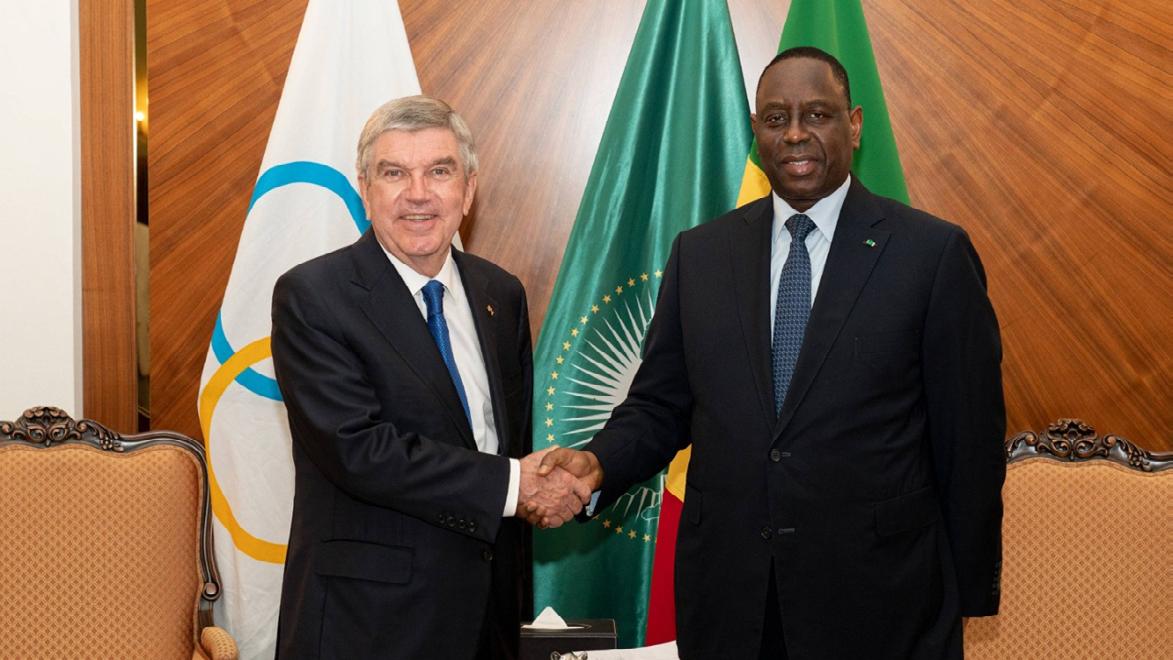
Dakar (Senegal), Nov 1 (IANS) International Olympic Committee (IOC) president Thomas Bach visited Senegal and met with President Macky Sall, examining the preparation work of the 2026 Youth Olympic Games in Dakar, the IOC has said. “I would like to thank President Sall for all the support he has been giving to the youth of Senegal, to sport, and to the Olympic Movement,” the IOC president said after the meeting on Saturday. “Thanks to this support, we are very confident in the success of the Youth Olympic Games here in Senegal in four years.” Due to the COVID-19 pandemic, the Dakar Games that were originally scheduled to be held from October to November 2022, were postponed to 2026 after a mutual decision by Senegal and the IOC. The Senegal tournament will mark the first time that an Olympic event will be held on the African continent. “We cannot wait for the moment to be back here and to enjoy this first Olympic event on African soil, an event for Africa, with Africa, that will welcome the youth of the world in Senegal,” Bach shared his anticipation of the event, reports Xinhua. Sall also expressed his gratitude to the IOC and President Bach “for the great cooperation with the Dakar 2026 Organising Committee.” During his visit to Senegal, Bach planted a symbolic baobab tree on campus of the Diamniadio University, the future Youth Olympic Village in Dakar, in the presence of 100 students and youths from Senegalese sports clubs. As part of the Olympic Forest project to promote IOC’s climate-positive strategy, around 590,000 native trees will be planted over four years across 90 villages in Mali and Senegal, with the first 70,000 trees having been planted in Senegalese and Malian villages in the Sahel zone. “The Olympic Movement is about building a better world through sport, and the Olympic Forest demonstrates our commitment to this vision,” Bach added.
La Liga: Barcelona defender Pique announces retirement
Madrid (Spain), Nov 5 (IANS) Barcelona defender and former Spain international Gerard Pique announced his retirement from club football on Thursday. Pique said through social media that “this Saturday will be my last game at Camp Nou.” “It is the moment to end this stage of my life. I always said that after Barcelona there will be no other club, and that is the way it is going to be,” said Pique. Pique will feature for the last time at Camp Nou against Almeria on Saturday, reports Xinhua. Pique, a three-time Champions League winner with the Spanish club, has played 615 games for Barcelona, scoring 52 goals. In addition to the Champions League triumphs, the
35-year-old helped Barcelona win eight Spanish league titles and seven Copa del Rey crowns. As a former Spain international, he helped his country win the 2010 World Cup and 2012 European Championship. FIFA World Cup: ‘Ticketless fans can enter Qatar after group stage’

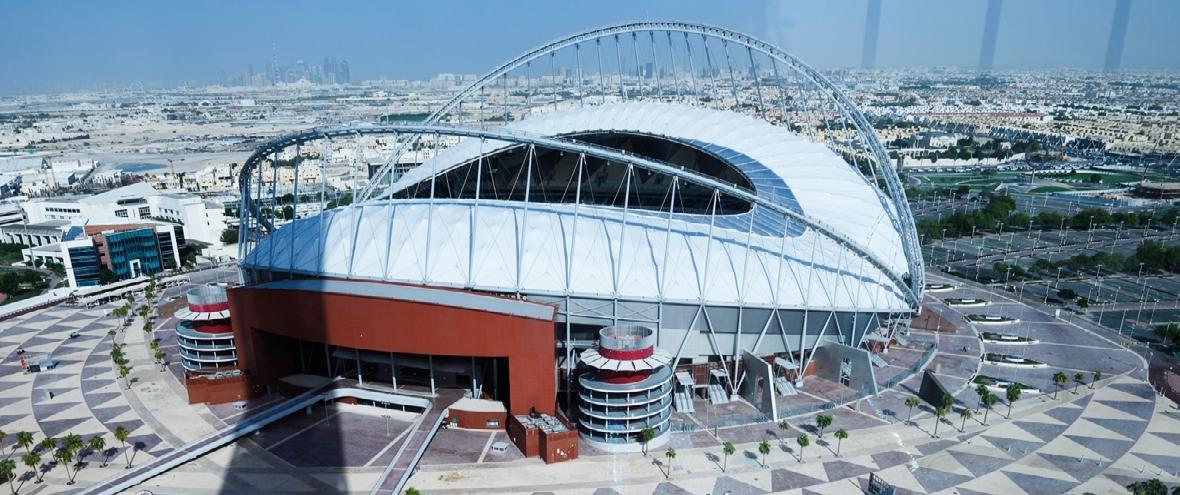
Doha, Nov 4 (IANS) Fans without tickets to FIFA World Cup 2022 matches can enter Qatar after the group stage of the tournament, organisers have announced at a press meet. To gain entry into the Gulf country after the conclusion of the group stage on December 2, non-ticketed fans will have to obtain a Hayya card, a key document introduced by Qatar for the tournament. Qatar, the first Middle East country to host the FIFA World Cup, has lined up curated festivities in addition to building eight futuristic stadiums in which matches will be played from November 20 to December 18. Security forces from multiple nations will help police the tournament during which about 1.2 million fans are expected in the country which itself has a population of about three million. FIFA World Cup Qatar 2022 organisers on Thursday outlined the latest operational aspects of the tournament during the press conference held at the Host Country Media Centre in Msheireb Downtown Doha. “We are pleased to announce our readiness to securely host the World Cup. The Ministry of Interior and security forces have worked diligently to put extensive plans and programmes in place to ensure the delivery of a safe and distinguished tournament,” said Colonel Jabr Hammoud Jabr Al Nuaimi, official spokesperson of the Ministry of Interior & Safety and Security Operations Committee (SSOC). He added: “We are delighted to announce today that non-ticketed fans will be able to enter the State of Qatar after the conclusion of the group stage on 2 December 2022 to enjoy the unique tournament atmosphere. Non-ticketed fans can apply for their Hayya Cards to enter Qatar through the Hayyaplatform or Hayya to Qatar 2022 mobile app from today, according to the listed requirements and QAR 500 entry fee for children aged 12 and over. Under 12s will not be charged.”
“For many years, the State of Qatar was among the highest-ranking countries in global security and safety indicators, topping the list of countries in the Middle East and North Africa. This makes Qatar an ideal country to safely host major events of all kinds,” Nuaimi asserted. Several cultural and entertainment facilities have been planned to regale fans, including more than 90 special events to take place on the sidelines of the tournament. Khalid Al Mawlawi, Deputy Director General, Marketing, Communications & Event Experience, SC, said: “In addition to the FIFA Fan Festival at Al Bidda Park, the Doha Corniche will be one of the largest fan destinations, with roving performances, cultural activities, food and beverage stalls and retail outlets along its 6km route, with capacity to host more than 70,000 fans every day.” Other activities will include the daily ‘Welcome to Qatar’ show, one of the biggest pyrotechnic shows in the world. Theme park rides and other attractions will be open to fans at Al Maha Island Lusail, along with the 974 Beach Club, the Hayya Fan Zone on Lusail South Promenade, North QetaifanIsland and the Arcadia Spectacular and ARAVIA by MDL Beast dance music festivals. The Last-Mile Cultural Activations will also feature more than 6,000 performances in 21 locations, Al Mawlawi added. Al Bayt Stadium on the outskirts of Doha will host the opening ceremony that will begin at 5 p.m. on November 20.

Los Angeles, Nov 6 (IANS) Singer-actress Selena Gomez considers fellow singer Taylor Swift her “only true Hollywood friend.” The actress admitted that she had a hard time fitting in with the “cool group” of celebrities, because she struggled with her identity, reports Mirror.co.uk. As Selena, 30, stars in her Apple TV+ documentary, ‘Selena Gomez: My Mind and Me’, she told ‘Rolling Stone’ magazine: “’I never fit in with a cool group of girls that were celebrities. My only friend in the industry really is Taylor [Swift], so I remember feeling like I didn’t belong.” Mirror.co.uk adds that after doing some soul searching, Selena said: “’I felt the presence
of everyone around me living full lives. I had this position, and I was really happy, but ... was I? Do these materialistic things make me happy?’ But she realised that she “didn’t like who she was” and said that she also “didn’t know who she was”. After ‘Selena Gomez: My Mind and Me’ dropped on Friday, Taylor showed her support for her friend’s new movie in the story section of her Instagram. She shared a snippet from the trailer and wrote: “So proud of you @selenagomez Love you forever.” Selena, who started her career when she was just 15 years old, has spoken about how she often considered taking her own life during a dark period. She had been battling psychosis, which eventually led to her being diagnosed with bipolar disorder. Anne Hathaway says ‘The Devil Wears Prada’ sequel is ‘tempting’
Los Angeles, Nov 3 (IANS) Hollywood star Anne Hathaway has admitted that a sequel to ‘The Devil Wears Prada’ is “tempting” - but unlikely. Despite there being another book, ‘Revenge Wears Prada: The Devil Returns’, released in 2013, seven years after the comedy-drama flick’s release, ‘The Intern’ star doesn’t believe a follow-up could be made today, reports Female First Uk. Appearing on ‘The View’ this week, she said: “I don’t know if there can be (a sequel movie). I just think that movie was in a different era, you know? Now, everything’s gone so digital, and that movie centred around the concept of producing a physical thing. It’s just very different now.” According to Female First UK, Anne would love to see where her character Andy and Emily (Emily Blunt) would be now, the assistants to Meryl Streep’s hellish magazine editor alter ego Miranda. She continued: “Although, it is tempting to think about Andy and Emily needing to get Miranda her coffee and she’s somewhere in Europe. And then along the way they pick up Stanley Tucci [Nigel] in Italy, who’s at a restaurant. It’s tempting, but I don’t think it’s gonna happen.” Female First UK further states that the 39-year-old star could, however, see it being rebooted with a new cast. She further mentioned: “But they could relaunch it. They could find new people and do it. Do you think they’d let us do that?”
Hillary Duff, other Hollywood celebs mourn passing of Aaron Carter

Los Angeles, Nov 6 (IANS) Hollywood celebrities, notably Hilary Duff, Diane Warren, Tyler Hilton, Johnnie Guilbert and others, are remembering Aaron Carter, who passed away at the age of 34, by sharing tributes on their social media. Carter first gained recognition as a young pop star in the 1990s, reports ‘Variety’. Hilary Duff, who starred with Carter in the Disney Channel series ‘Lizzie McGuire’, posted a tribute to the singer on Instagram. She wrote: “For Aaron -- I’m deeply sorry that life was so hard for you and that you had to struggle in-front of the whole world. You had a charm that was absolutely effervescent... boy did my teenage self love you deeply. Sending love to your family at this time. Rest easy.” Diane Warren philosophised: “Fame at such a young age is often more a curse than a blessing and surviving it is not easy.” ‘Variety’ adds that Johnnie Guilbert, of the band ‘Til Death Do We Part’, acknowledged the loss with a picture showing the two musicians side by side. Guilbert tweeted: “I know I would make jokes about Aaron Carter saying some crazy shit. But it’s truly saddening to see and hear he (passed) away. I really wanted him to recover and better himself. Sending his family lots of love, this sucks really bad to hear. Rest easy man.”

Los Angeles, Nov 6 (IANS) Pop singer Aaron Carter, the brother to Backstreet Boys’ member Nick Carter passed away at the age of 34. ]The death of Aaron, who released his self-titled 1997 debut album at the age of nine, was confirmed by Taylor Helgeson. A statement from his family and management is awaited, reports Variety. Alejandra Parra, Los Angeles County Sheriff’s deputy, confirmed officers were responding to a 10:58 a.m. (Pacific Standard Time) call regarding a suspicious death at Carter’s residence in the 42000 block of Valley Vista Drive. Parra said: “A deceased person” was found at the home, but the identity had not been confirmed. Investigators are still at the site. According to Variety, Carter got his start in music by landing a record contract after serving as the opener for the Backstreet Boys in 1997. His debut studio album, featuring the hit track ‘Crush on You’, went gold in December 1997, launching him into the spotlight at a young age. Carter’s second album, ‘Aaron’s Party (Come and Get It)’, was released in 2000. Featuring hit tracks like ‘That’s How I Beat Shaq’ and ‘I Want Candy’, the album went triple-platinum, leading the teenage Carter to serve as the opening act on tours by Britney Spears and the Backstreet Boys. The star also made appearances on Nickelodeon and Disney Channel programmes, such as ‘Lizzie McGuire’ and ‘All That!’ Two more albums followed: ‘Oh Aaron’ in 2001 and ‘Another Earthquake!’ in 2002.
Health Setback: Andy Taylor skips Duran Duran’s Rock & Roll Hall of Fame moment
Los Angeles, Nov 6 (IANS) Andy Taylor, the original ‘Duran Duran’ guitarist, could not attend the ‘Rock and Roll Hall of Fame’ induction ceremony in Los Angeles which honoured the group. The cause behind his absence from the ceremony are his health issues related to Stage 4 metastatic prostate cancer, reports ‘Variety’. During their induction into the Rock Hall at the Microsoft Theater, Duran Duran revealed that Taylor, diagnosed with metastatic prostate cancer four years ago, suffered a setback from the diagnosis due to which he had to deal with travel restrictions. According to ‘Variety’, the band honoured Taylor during the ceremony reading portions of an acceptance speech letter. “Just over four years ago I was diagnosed with stage 4 metastatic prostate cancer. Many families have experienced the slow burn of this disease and of course we are no different; so I speak from the perspective of a family-man but with profound humility to the band, the greatest fans a group could have and this exceptional accolade,” Taylor wrote in his speech. Only part of the letter was read during the acceptance speech, but a more detailed version was published on the group’s website, going into greater detail about his setback. “I have the Rodgers and Edwards of doctors and medical treatment
that until very recently allowed me to just rock on. Although my current condition is not immediately life threatening there is no cure,” he said, quoted by ‘Variety’. “Recently I was doing okay after some very sophisticated life extending treatment, that was until a week or so ago when I suffered a setback, and despite the exceptional efforts of my team, I had to be honest in that both physically and mentally, I would be pushing my boundaries.” Backstage in the press room, Simon LeBon elaborated on his feelings about Taylor’s condition, briefly as he said, “It is devastating news to find out that a colleague... not a colleague... a friend, one of our family... is not gonna be around for very long. It is absolutely devastating. We love Andy dearly. I’m not gonna stand here and cry or anything, that would be inappropriate, but that’s what I feel like.” Jude Antony’s film on floods that ravaged Kerala titled ‘2018’


Chennai, Nov 4 (IANS) Director Jude Antony’s upcoming film on the great floods that ravaged Kerala recently has been titled ‘2018’. The unit of the film, which features a huge star cast including Kunchako Boban, Tovino Thomas, Asif Ali, Vineeth Srinivasan, Aparna Balamurali, Kalaiyarasan, Narain, Lal, Indrans, Ajuvarghese, Tanviram, Sshivada and Gautami Nair, recently released the title poster of the film. Actress Sshivada, who too released the title poster on her Instagram timeline, wrote, “The story of the brave Keralites who fought together the flood that drenched the state in 2018. Unveiling the title of the movie. Revealing the story of the real heroes. ‘Everyone is a hero’.” Anto Joseph, who is one of the producers of the film, wrote a lengthy post in Malayalam about the film. He said, “2018 is a constant memory of the great flood for Kerala. We still have sleepless nights, nightmares thinking about the flood that washed away everything... But Malayalees survived that too... “... We defeated the flood with sore hands and minds. The world was amazed at the unity and determination of Malayalees. When that story is told in Abhrapali, it’s name is 2018 nothing else! “This is a dedication... For the souls taken away by the flood... For those who still cry remembering them... For those who had to stand helpless seeing all the efforts of a lifetime fade away... For the army who appeared as saviours... For the fisherman brothers... For the fellowship of Malayalees... For the great word man... The story of the brave Keralites who fought together the flood that drenched the state in 2018. Unveiling the title of the movie Revealing the story of the real heroes. Everyone is a hero.”
Rachel Zegler wraps up shoot of ‘Hunger Games’ prequel

Los Angeles, Nov 6 (IANS) Golden Globe winning actress, Rachel Zegler, who impressed the audience with her work in Steven Spielberg’s ‘West Side Story’, has wrapped up the shoot of her upcoming sci-fi action movie - the prequel to ‘Hunger Games’. The actress, 21, celebrated the final day of filming with some behind-the-scenes photos as she wrapped ‘The Ballad of Songbirds and Snakes’, based on Suzanne Collins’ 2019 novel of the same name, reports People magazine. Taking to her Twitter, she shared pictures of herself holding the clapperboard with a glimpse of the set in the background. She wrote in her tweet: “I have loved every second. And that’s a wrap.” In a follow-up tweet, quoted by People, she added: “Many many many more words come to mind, but I shan’t bore you by pretending I have anything new to offer you with my thoughts. Just know I am thankful. Just know I love telling stories. Just know I am so happy with real life. Happy wrap, my songbirds.” According to People, she was announced in May to star in the adaptation as Lucy Gray Baird, a District 12 tribute in the 10th Hunger Games. Others playing important roles in ‘The Ballad of Songbirds and Snakes’ include Viola Davis, Hunter Schafer, Peter Dinklage, Jason Schwartzman and Zegler’s boyfriend Josh Andres Rivera, with whom she previously made her film debut last year in Steven Spielberg’s remake of ‘West Side Story’.
Ana de Armas-led ‘John Wick’ spin-off movie ‘Ballerina’ starts rolling

Los Angeles, Nov 6 (IANS) Fans of the John Wick franchise are in for a treat as the Ana de Armas-led spin-off ‘Ballerina’ will start rolling the cameras in the coming week. The announcement was made by Lionsgate CEO Jon Feltheimer during the latest investors’ call, reports ‘Collider’. The future prospect for the franchise looks good as among other franchise-related news, it has been announced that Colin Woodell-led three-part prequel series ‘The Continental’ will stream internationally on Amazon Prime outside the US. TV Line reported about the starting of shoot for the spin-off. What’s interesting is that the studio is also “fielding proposals” for a big video game based on the Keanu Reeves movies. The news came out last year that the ‘No Time To Die’ star has been tapped for the lead role in ‘Ballerina’ movie, which will follow a young assassin trained at the ballet school seen in ‘John Wick: Chapter 3 - Parabellum’. According to Collider, the story follows her quest for revenge against those who killed her family. The feature will be helmed by ‘Underworld’ director Len Wiseman who directs from a script by Shay Hatten, who is known for features like Zack Snyder’s ‘Army Of The Dead’ and ‘John Wick: Chapter 3 - Parabellum’. De Armas had earlier disclosed that Emerald Fennell, the OscarWinning writer-director behind 2020s ‘Promising Young Woman’, has provided the final touches to the script from a woman’s point of view. First released in 2014, the success of Reeves-led ‘John Wick’ catapulted into two sequels, ‘John Wick: Chapter 2’, and ‘John Wick: Chapter 3 - Parabellum’. After Parabellum became the highest-grossing film of the franchise in just 10 days garnering $326 million worldwide, a fourth and fifth installment were announced.
Mariah Carey says she ‘didn’t fit in’ with beauty standards due to biracial heritage

Los Angeles, Nov 5 (IANS) Singer Mariah Carey has recalled a moment when she felt she “didn’t fit in” with beauty ideals. The 52-year-old singer said that her biracial heritage set her apart as “other” when she was growing up in a small town on New York’s Long Island. The ‘All I Want for Christmas Is You’ hitmaker said that her family, at that time, didn’t have the money for her to spend on looking after her appearance. She told PEOPLE: “That’s when I learned I was definitely ‘other.’ It would’ve been great to actually be a chameleon, but I didn’t have the tools for it, meaning we didn’t have money.” “For people in the white neighbourhoods where we lived, it was clear that I was mixed with something. I wasn’t, like, the little girl living next door, with the silky long hair and freckles,” she shared. “I was like, ‘Oh my gosh, she’s what beauty is supposed to be.’ And I didn’t fit in with that. I had, like, three shirts, and my hair was textured, honey. But it was several textures, and we were not working together. I don’t wanna use the word ‘neglected,’ but it wasn’t a fashion show,” Mariah added. Asked what she’d tell her 12-year-old self, she said: “’Save up your money. Buy some conditioner and a comb, just wet your hair, keep the conditioner on it, and let it air-dry. You’ll be okay.’ Oh, and I would’ve said, ‘Please don’t shave your eyebrows. It’s never gonna look good on you.’” Mariah has channelled her childhood experiences into her new kids’ book, “The Christmas Princess”, with a positive message at the heart of the story. She said: “It’s a lot about surviving the bullies that are making the main character feel ashamed of who she is. She survives and finds her destiny. Her music rescues her. It’s not a Prince Charming who comes in. She saves her own day,” she said.
Los Angeles, Nov 6 (IANS) England-based Sri Lankan medic-turned-actor Prasanna Puwanarajah, who plays Martin Bashir in Season 5 of ‘The Crown’, is working in tandem with ‘Line of Duty’ creator Jed Mercurio over an adaptation of Rachel Clarke’s pandemic-themed bestseller ‘Breathtaking’. The book is being developed as a three-part as-yet-untitled drama for UK broadcaster ITV, Puwanarajah, who was formerly a doctor with the UK’s National Health Service (NHS), as was Mercurio, told ‘Variety’. Clarke is writing the drama with Puwanarajah and Mercurio. Set during the time when the UK was being ravaged by COVID-19, Clarke’s book provides an insider’s look at the pandemic from a hospital doctor’s point of view. “Rachel Clarke is a palliative care doctor who I used to work with in the NHS, when I was a first year junior doctor and she was a medical student -- I taught her how to do IV drip lines. And she’s now an incredible statesperson for the NHS and advocate for NHS staff and patients,” Puwanarajah said, quoted by ‘Variety’.
“It’s looking at the lives of healthcare professionals in the first few months of the pandemic,” Puwanarajah said. “I’m very keen to get what I think is a really important piece of public interest drama out into the world. Because, we’ve been living through tough times, and it is important to challenge the shifting landscape of truth that we are told and to push back against that with information and facts based on witnessed events. It’s something that’s really important to me.” ‘Variety’ further states that Mercurio and Puwanarajah previously collaborated on graphic novel ‘Sleeper’, where the worlds of science fiction, conspiracy thriller and Westerns collide. ‘Westworld’ cancelled after four seasons
Los Angeles, Nov 5 (IANS) HBO series ‘Westworld’ has been cancelled after four seasons, the network announced on Friday. The news comes barely within three months after the series aired its Season 4 finale. Variety is told that a multitude of factors went into the decision to end the sci-drama, including the production’s hefty price tag, combined with dwindling viewership and an ongoing evaluation of programming across the board at HBO’s new parent, Warner Bros Discovery, reports Variety. The David Zaslav-run company has been paring back spending as part of a plan to institute $3.5 billion in cost-saving synergies, which the business has promised to find over the next three years post-April merger. However, even on the heels of a rough third-quarter earnings report, Zaslav has continued to underline the importance of healthy content spend, and HBO has several high-profile, big-budget dramas that make it clear the premium cabler isn’t cutting back overall, including ‘House of the Dragon’, ‘Euphoria’ and the upcoming ‘The Last of Us’ adaptation. Created by husband-and-wife producing duo Jonathan Nolan and Lisa Joy and produced by J.J. Abrams, ‘Westworld’ starred Evan Rachel Wood, Thandiwe Newton, Ed Harris, Jeffrey Wright, Tessa Thompson, Luke Hemsworth, Aaron Paul, Angela Sarafyan and James Marsden. Newcomers for Season 4 included Ariana DeBose, Aurora Perrineau and Daniel Wu. “Over the past four seasons, Lisa and Jonah have taken viewers on a mind-bending odyssey, raising the bar at every step,” HBO said in a statement on Friday. “We are tremendously grateful to them, along with their immensely talented cast, producers and crew, and all of our partners at Kilter Films, Bad Robot and Warner Bros Television. Nolan and Joy added in their own statement through banner Kilter Films: “Making ‘Westworld’ has been one of the highlights of our careers. We are deeply grateful to our extraordinary cast and crew for creating these indelible characters and brilliant worlds. We’ve been privileged to tell these stories about the future of consciousness - both human and beyond - in the brief window of time before our AI overlords forbid us from doing so.” In October, Nolan and Joy told Variety that they had hopes for a fifth and final season to conclude the show as they had planned. “We had always conceived of a fifth and final season,” Nolan said during an interview about his and Joy’s new Amazon Prime Video series, ‘The Peripheral’. “We’re still in conversations with the network,” reports Variety. ‘Westworld’ first debuted in October 2016. The series centred on the titular technologically advanced amusement park filled with A.I. ‘hosts’ in a wild west setting. The show ventured into the ‘real world’ in all its futuristic glory in its third season. Based on the 1973 film of the same name written by Michael Crichton, HBO’s ‘Westworld’ was executive produced by Nolan and Joy alongside Abrams, Alison Schapker, Denise, Athena Wickham, Richard J. Lewis and Ben Stephenson. The series has been nominated for 54 Emmys and scored nine wins, including Newton’s trophy for outstanding supporting actress in a drama series in 2018.





